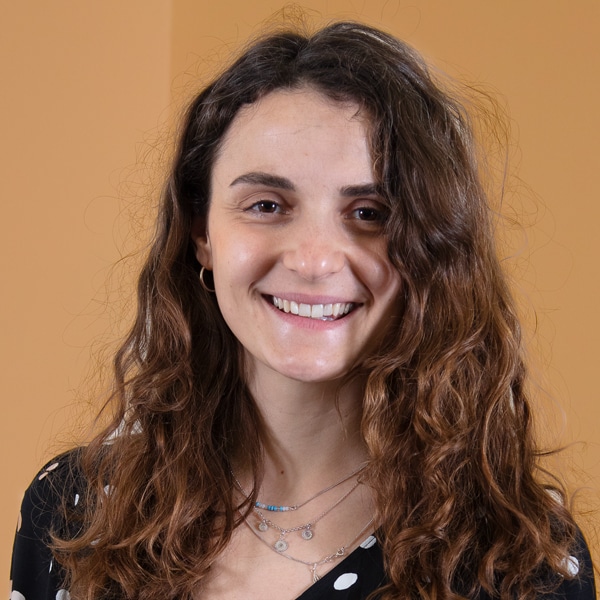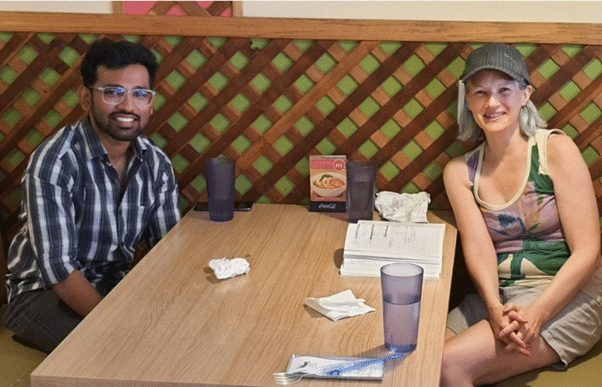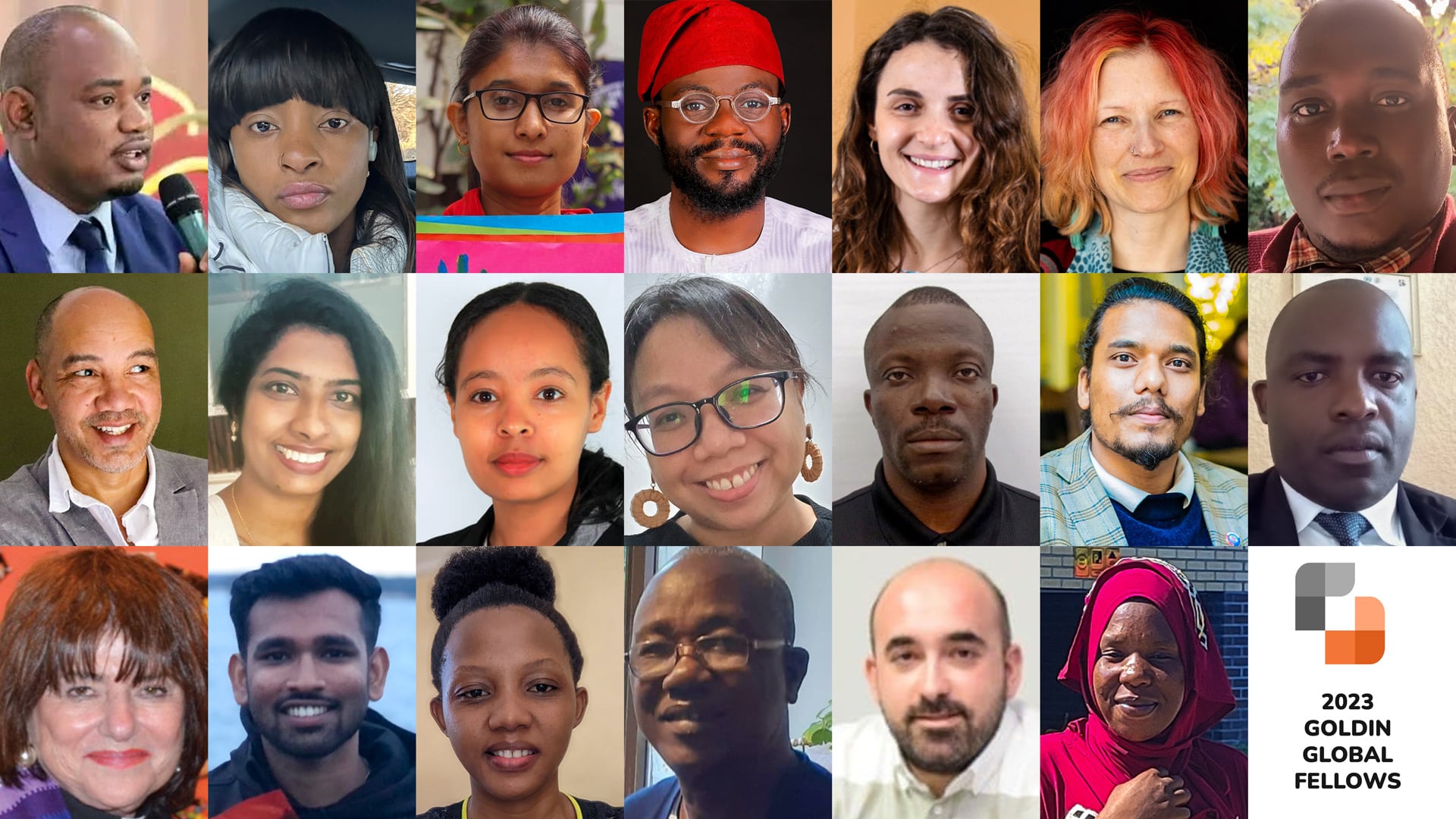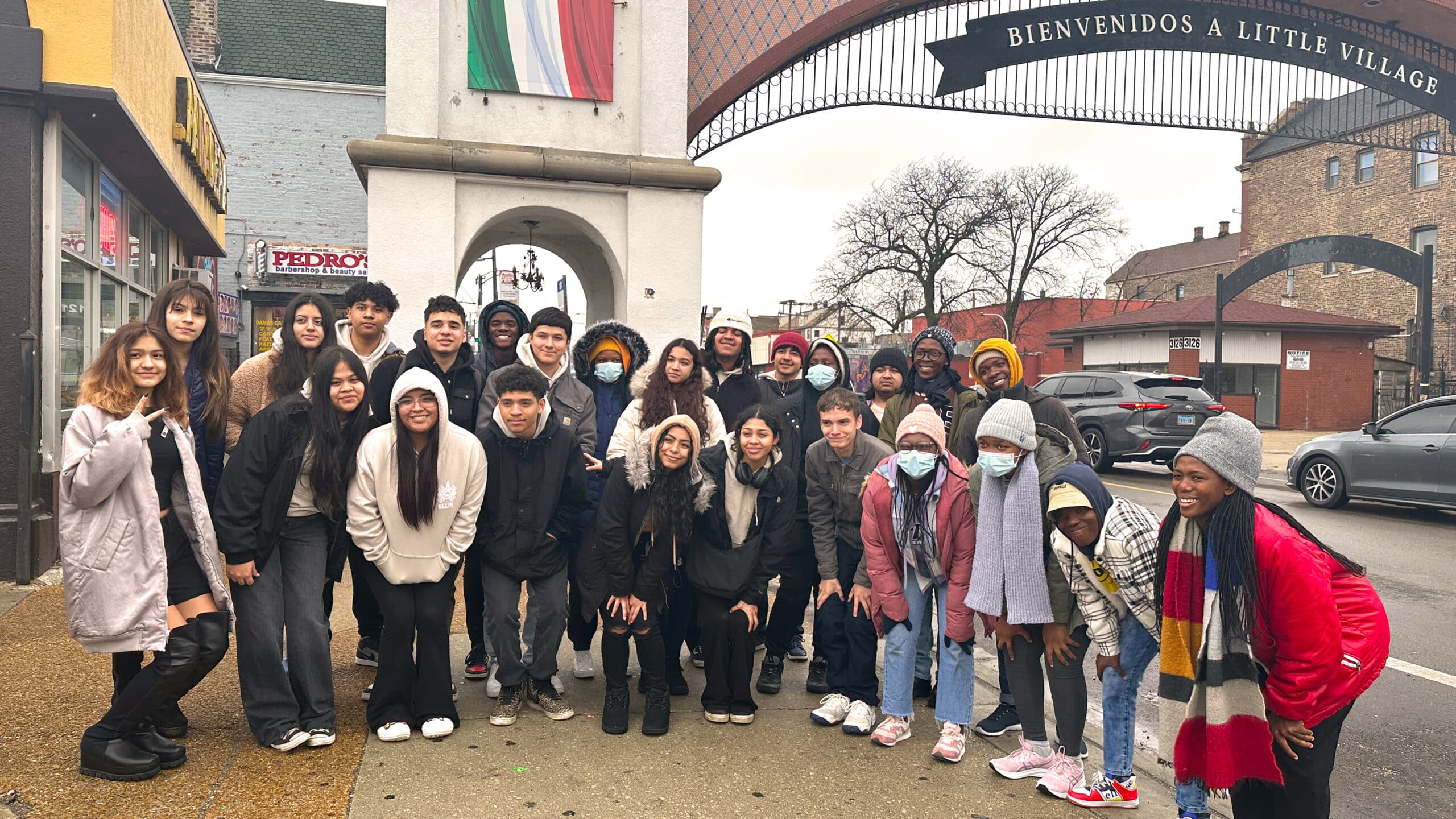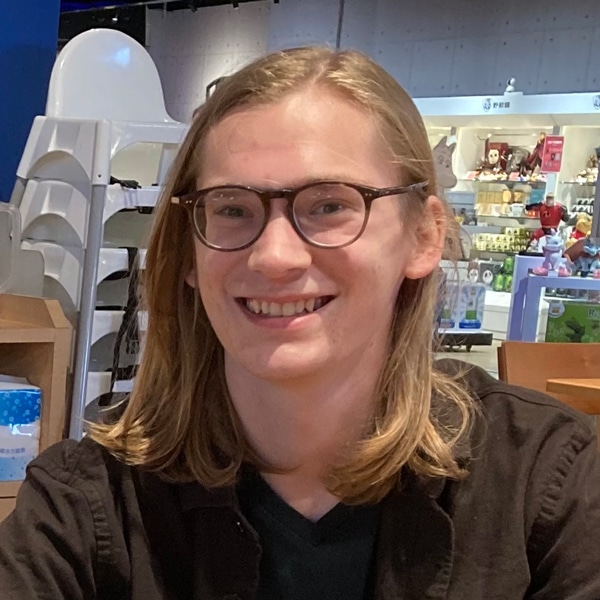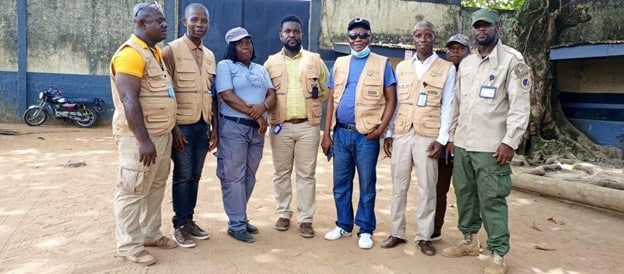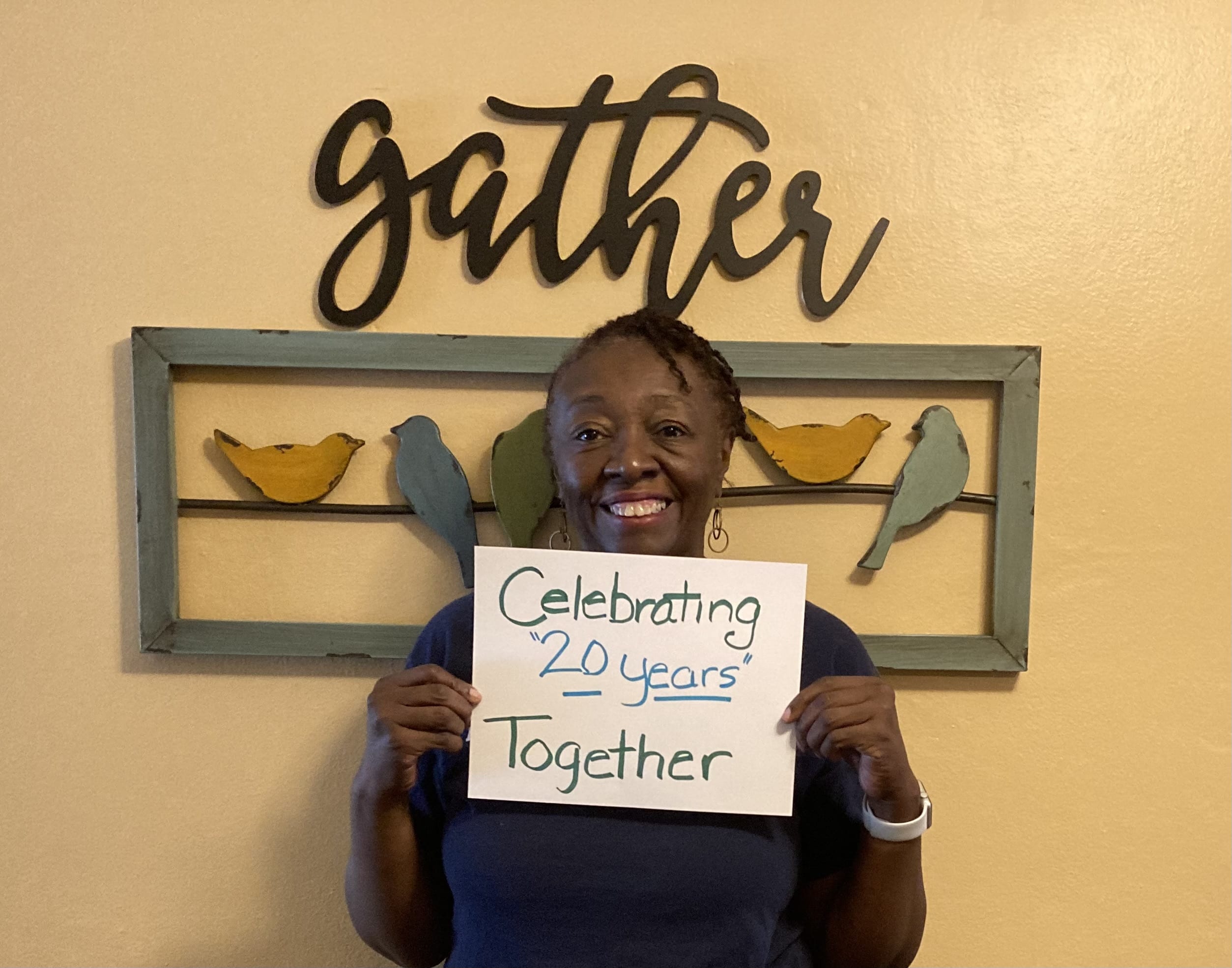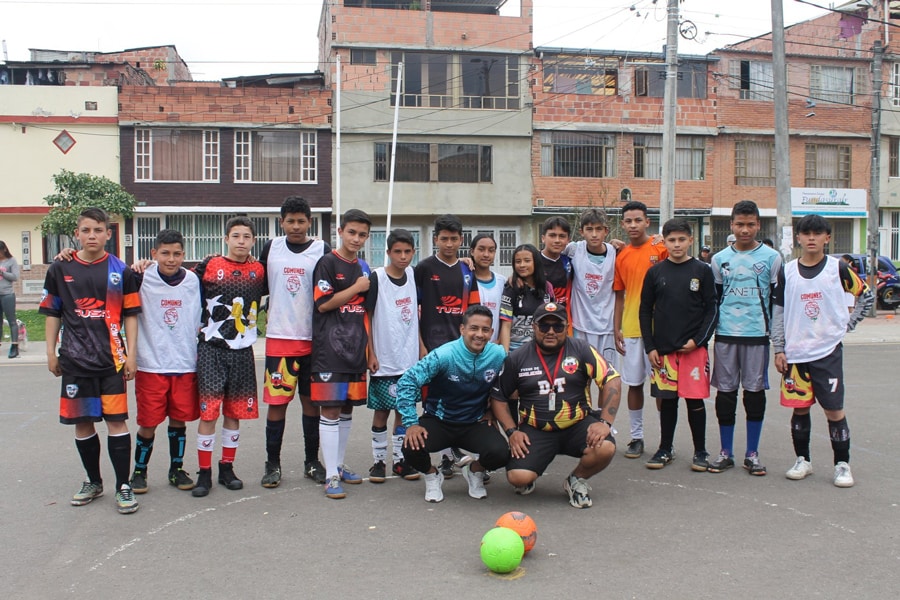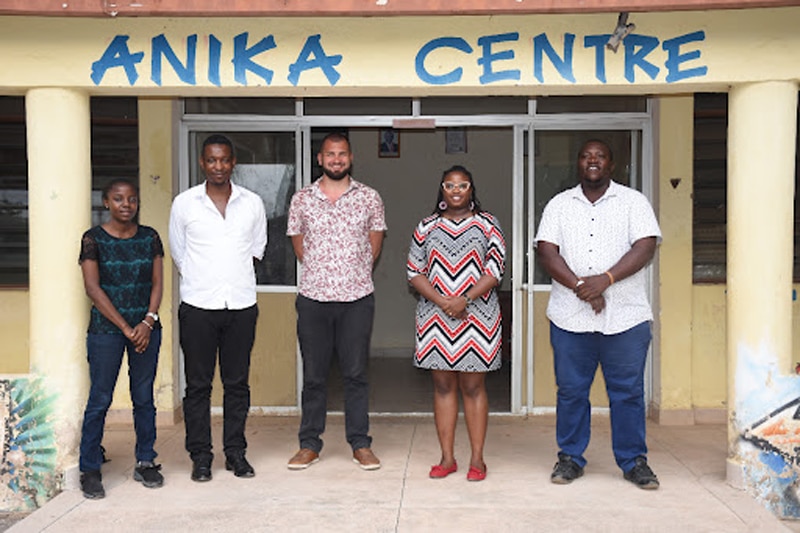Mapping a Community Vision in Sri Lanka
As part of her Goldin Global Fellowship, Sashikala Lakshman, from Sri Lanka, held her Community Visioning Summit in Rawathawatta East. This gathering was designed to identify and address the prevailing challenges faced by this area collaboratively.
Participating in the 2023 Goldin Global Fellowship made Sashikala, who believes in our collective responsibility to safeguard children's rights, a more skilled community worker. She emphasizes the lessons from the asset mapping exercise under the Fellowship.
Speaking to Goldin Institute, Sashikala highlighted the importance of the Fellowship lessons and the utilization of the GATHER platform in successfully implementing her event, which drew active participation from a diverse range of stakeholders, totaling approximately 50 attendees representing various categories.

A Sense of a Shared Purpose Among Diverse People
The Community Visioning Summit opened with a comprehensive overview of the Goldin Global Fellowship program and the Community Visioning Summit, elucidating the shared objectives and mission.
“In a spirit of inclusivity and community building, each attendee had the opportunity to introduce themselves, providing insights into their respective roles within society and their contributions to its betterment. This initial interaction fostered a sense of camaraderie and shared purpose among the diverse participants, laying a solid foundation for collaborative discussions and problem-solving throughout the summit.” Sashikala says.
She further elaborated on her goals to harness the assets and talents within her community to address the challenges effectively: “The primary objectives were to engage with community members, identify their most pressing issues, and collaboratively develop a concise three-month proposal for addressing these challenges while simultaneously constructing an asset map of the community.”
The summit was attended by a diverse group of community members including the Divisional Secretary of Moratuwa, Viharadhipathi Thero of the Rawathawatta temple, Moratuwa’s Probation Officer, the Principal of the Roman Catholic School, the Grama Niladari, the Chief Nursing Officer from the MoH Office, teachers and students from the Roman Catholic School, and as well as other community members. Additionally, respected elders from the community and staff at Sarvodaya, community-based development organization in Sri Lanka, contributed their valuable insights and expertise.

Asset Mapping - A Stronger Community Will for Change
Mapping community assets, a skill learned and discussed during the Fellowship weekly roundtables, proved to be a unique value during this event. Sashikala notes: “During the summit, the asset map that had been initially identified was presented, and participants were actively encouraged to contribute by identifying additional assets within their reach. This interactive approach enriched the asset map and sparked lively discussions among attendees.”
She further believes that because of the enthusiastic participation, the asset map and the summit demonstrated a shared commitment to community development and a genuine interest in identifying and leveraging the resources available to create a stronger, more resilient Sarvodaya and Rawathawatta East.
In addition to the initial asset maps identified before the summit, Sashikala shares how participants eagerly enriched the asset map. For instance, she brings valuable insights from crucial Sarvodaya representatives, enriching the asset map with various resources and services. “The manager of Sarvodaya's End Poverty Knowledge Center emphasized the significance of assets like Sarvodaya Central Library, SDGs Academy, End Poverty Knowledge Center, and Sarvodaya Institute of Higher Learning. These institutions were acknowledged for their pivotal roles in providing essential services to the community, fostering education, skill development, and knowledge dissemination.”
Some other additional assets identified after the summit are Vishva Niketan, Suwasetha Child Development Center, Roman Catholic School, Buddhist Temple, Sarvodaya Store, Probation Office, Grama Niladhari Office, and the engagement of community members, volunteers, children, and youth.

Stakeholders Appreciating the Initiative
At the summit, Sarvodaya's Vice President, Neetha Ariyaratne, highlighted the challenges experienced by low-income families and children due to the economic recession, including the alarming issue of parental drug addiction, which poses a significant threat to child safety in East Rawathawatta. She emphasized that Sarvodaya is actively involved in addressing these issues through orphanages and daycare centers and encouraged attendees to provide information regarding children in need of assistance.
The principal of the Roman Catholic school underscored the pivotal role of schools in identifying and addressing local problems, emphasizing that schools serve as microcosms of their communities, with children from diverse backgrounds and age groups. He advocated for securing the future of school children, expressing concern about the pervasive issue of drug-related challenges affecting their lives. Many disciplinary problems have been identified in their school, and the principal thinks that children and parents should be informed about this. He suggested that the parents in the Rawathawatta area should be made aware of these problems through entertainment programs.
Viharadhipathi Thero said that community support in solving these problems is minimal and that there should be more community participation in implementing programs. The members of Sarvodaya particularly pointed out that the involvement of children is significant in finding solutions to community problems because they are the ones who make decisions regarding the future of the country.

Infusing Positive Change Together
Sashikala emphasized the inclusivity of the event and the strength of a collaborative, participatory approach to addressing community issues. “Importantly, the summit was recognized as more than just another program; it was perceived as the starting point for concrete actions to tackle the challenges identified,” she adds.
Based on the reflections and feedback from participants, a network will be promptly established, including all attendees. “This platform will facilitate ongoing communication, ensuring that everyone remains informed about the program's future actions and allowing for continuous progress monitoring. This collaborative approach will be crucial in turning the identified challenges into actionable programs, driving positive change, and creating a brighter, more resilient future for all residents of the Rawathawatta East area.” She leaves us with a message of unity and hope by highlighting that people can enable change together.

Transcending Borders: Two Fellows Helping U.S. Trafficking Survivors Become Financially Literate
Two community activists, Jill Langhus-Griffin, the Founder of Liluye from Arizona, and Tarun Masapeta, the Founder of Project Educate India Financially (EIFL), from India, first met virtually in June, during the first weekly roundtable of the 2023 Goldin Global Fellowship. With other peers from around the world, during the Fellowship, they discussed their own communities' most emergent needs and ways they can play an active role in establishing and maintaining community-driven social changes. These discussions and utilizing the GATHER platform brought them closer to their shared goals for a better society.
After a joint meeting in August, Jill and Tarun met in person in Phoenix, Arizona, to dig deeper into a possible partnership between their two organizations to create a financial literacy program for trafficking survivors in the U.S. With a plan to tailor it to other areas of the world who could benefit from this training afterward, Jill and Tarun have forged a collaboration to empower trafficking survivors in the U.S.
Through this collaboration Project EIFL X Liluye was born to address the unique financial challenges faced by trafficking survivors in the U.S. The project spans an 8–10-week timeframe for approximately 8-10 participants. It features up to eight financial topics taught in 45-minute, separate Zoom workshops. Their endeavors in this joint initiative reflect the power of community-driven initiatives in tackling such issues.
Joining Forces to Help Trafficking Survivors Become Financially Literate
At the beginning of our conversation, they shared why the creation of this program was essential. From her experience and activism, Jill knew that survivors, especially those she knew in the U.S., have challenges around re-establishing their credit and becoming financially independent. “When Tarun and I first met and chatted online in July, and I found out that he had been offering other organizations education in financial literacy and other things, I realized there was an opportunity for collaboration.” Jill says. "To continue the mission of my project, it felt like a good intersection to integrate our ideas and bring the EIFL curriculum to trafficking survivors in the U.S. Jill gave me a little insight into how a lot of trafficking survivors usually end up losing most of their assets if they have any and their belief in themselves." Tarun says. Jill elaborates that traffickers often taint survivors' credit, thus making it hard for them to become economically empowered. “Providing a basic course on personal financing would be a good start to help these survivors get back on their own feet.” Tarun adds.
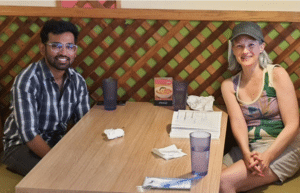
Goldin Global Fellowship as the Meeting Place
Jill and Tarun shed light on how their participation in the Global Goldin Fellowship played a role in the development of this program, considering one of them is from the U.S. and the other from India.
"If I had not been part of the Goldin Fellowship and had not been reaching out and interviewing other Gather fellows in our cohort, such as Tarun, I would not have known that there was an opportunity for collaboration on this financial literacy program."
- Jill Langhus-Griffin
She adds: “When Tarun and I were talking about Liluye and what my vision, plan, and goals were for it, and Tarun was talking about his organization, Project EIFL, it occurred to both of us almost simultaneously that there was an opportunity to collaborate and make more impact together.” Tarun also acknowledges they would not have joined hands in this collaboration if it had not been for the Goldin Global Fellowship: "Jill and I connected right before I left for the U.S. on a Zoom call where we discussed our work and how we felt there was a lot of scope to collaborate. We also met in person in Phoenix, Arizona, to discuss our expectations and set the ball rolling by laying out a blueprint." Even before this Zoom meeting, Jill was impressed by Tarun’s ambition, likable personality, and enthusiasm for impacting and helping others. “So, when we met on Zoom, it was not strange to me to ask him if he would be interested in collaborating on a financial literacy project/program together.” Jill says.
What does the project cover? What's its impact?
The Project EIFL X Liluye program will cover these areas that survivor colleagues and team members identified as being essential topics:
- How to open a bank account (step by step)
- How to calculate taxes (where to set them aside, where to put them, how to reinvest them, how to do balance sheets, and what is taxable)
- How to invest
- How to reinvest in their business (how to start anew as an individual and/or business)
- Organizational financial literacy (when given a lump sum and financing their own organization)
- How do they pay themself (not out of a business account)
- Where to put their money (what to budget in, what to spend on, and what percentage to take out)
- Financial Aid (for anyone considering going back to school).
Conclusively, they share what impact they strive to achieve through this project, both for the survivors and the broader community. Tarun says the project aims to teach financial literacy basics, allowing individuals to make learned decisions.
"Our goal collectively is to ensure that all attendees have a good understanding of topics we would discuss and that they are being in practice."
- Tarun Masapeta
He highlights that this marks EIFL's first project in the U.S., making it the 5th country outside India to facilitate financial literacy workshops. Jill, who is always looking for the best, most impactful ways to serve and help survivors, shares her thoughts on what this project means for the survivors. “It occurred to me that all survivors I know share a common concern about lack of funding. With this training, they potentially would not need to struggle anymore in this area, and they could become more empowered by having control over their finances and, in turn, their lives.”She hopes that all the survivors that attend the program will gain clarity in all the topics covered, that they will feel confident and empowered to take control of their finances or more so than they were before the program, and to build the organizations that they are planning to or feel more confident in controlling their organization’s finances after taking it.
Jill and Tarun are among 20 community activists who participated in the 2023 Goldin Global Fellowship, living and working in Albania, Bangladesh, Burundi, Cameroon, Ethiopia, India, Kosovo, Malawi, Mali, Nepal, Nigeria, the Philippines, Senegal, South Africa, Sri Lanka, Tanzania, the United States and Zimbabwe.For five months, this diverse group of fellows worked together as a Community of Practice, building on their neighbors' talents and their communities' assets to make real and lasting change around the world.
Meet the 2023 Goldin Global Fellows English Language Cohort
by Yusuph Masanja, Co-Facilitator, Goldin Global Fellows
The Goldin Institute is proud to introduce the 2023 Goldin Global Fellows (English Language Cohort)!
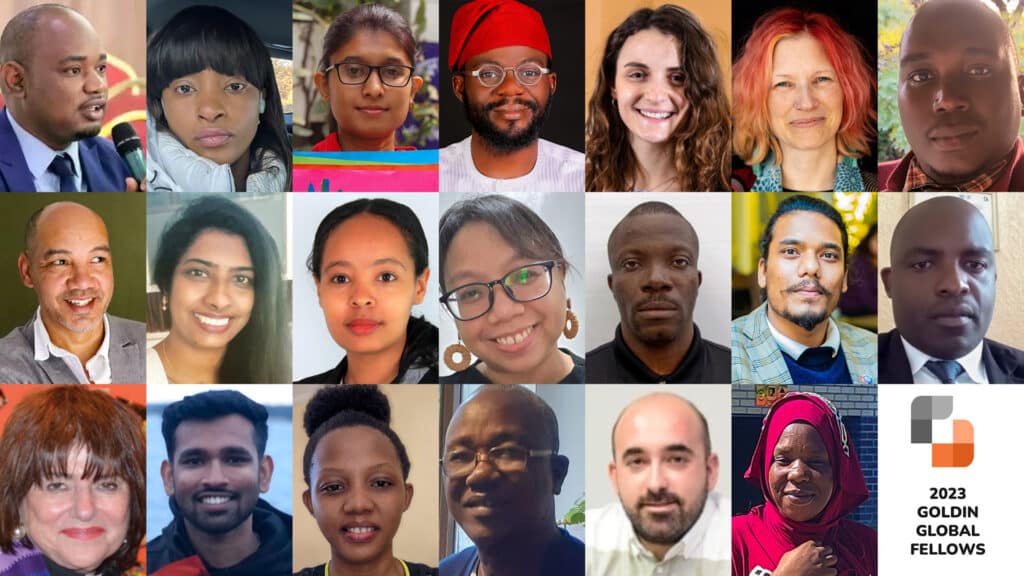
We invite you to learn about each of the outstanding Goldin Global Fellows who live and work in Albania, Bangladesh, Burundi, Cameroon, Ethiopia, India, Kosovo, Malawi, Mali, Nepal, Nigeria, the Philippines, Senegal, South Africa, Sri Lanka, Tanzania, the United States and Zimbabwe. This diverse group of fellows will learn and work together as a Community of Practice, building on the talents of their neighbors and the assets of their communities to make real and lasting change around the world.
ABOUT GATHER
The Fellows are learning together through GATHER, which is both a mobile platform for shared learning and a curriculum for people who want to build on the talents of their neighbors and the assets of their communities to make real and lasting change. Gather Fellows learn and work together through an innovative curriculum that comes pre-loaded on a tablet device with all the connectivity, materials, videos, practices and tools necessary to provide a mobile classroom and toolkit for community leadership.
The Goldin Global Fellows connects and equips grassroots leaders across the world to lead community driven social change. The 2023 Goldin Global Fellows is the fifth international cohort to utilize the GATHER platform, an online learning hub built by the Goldin Institute to empower grassroots leaders. They will engage in a 22-week course of intensive shared learning as well as group projects, culminating in a graduation event in Fall 2023. The curriculum has been designed and refined in collaboration with the Fellows themselves, based on their practical knowledge and hard earned wisdom, with input from a wide range of civic leaders.
To follow along the learning journey with the Goldin Global Fellows, please sign up for our newsletter and follow up on Twitter, Facebook and Instagram.
Teaching the Importance of Pluralism and Social Inclusion through Robotics
By: Zeki Salah, Communications Associate
A global grassroots robotics initiative, One Team Two Continents, brought thirteen South African students to Chicago in March to participate in a FIRST robotics competition. The project was a joint collaboration between 2019 Chicago Peace Fellow Jackie Moore and 2018 Global Fellow Dieudonne Anumbosi Allo. Funding from the Chicago Peace Fellows Mutual Aid Collaborative and the U.S. Embassy in South Africa enabled the team to provide cultural programming and transportation for the South African students as well as their Chicago robotics team mates.
The Mutual Aid Collaborative consists of 74 Black and Brown leaders and committed allies who live and work in the communities they serve on the South and West sides. They have raised over $100,000 to support several active projects. As an expression of solidarity and support, The Funders Pledge, a project of the Mutual Aid Collaborative, decided to share their funding with the One Team Two Continents team to help cover the local costs of hosting the students.
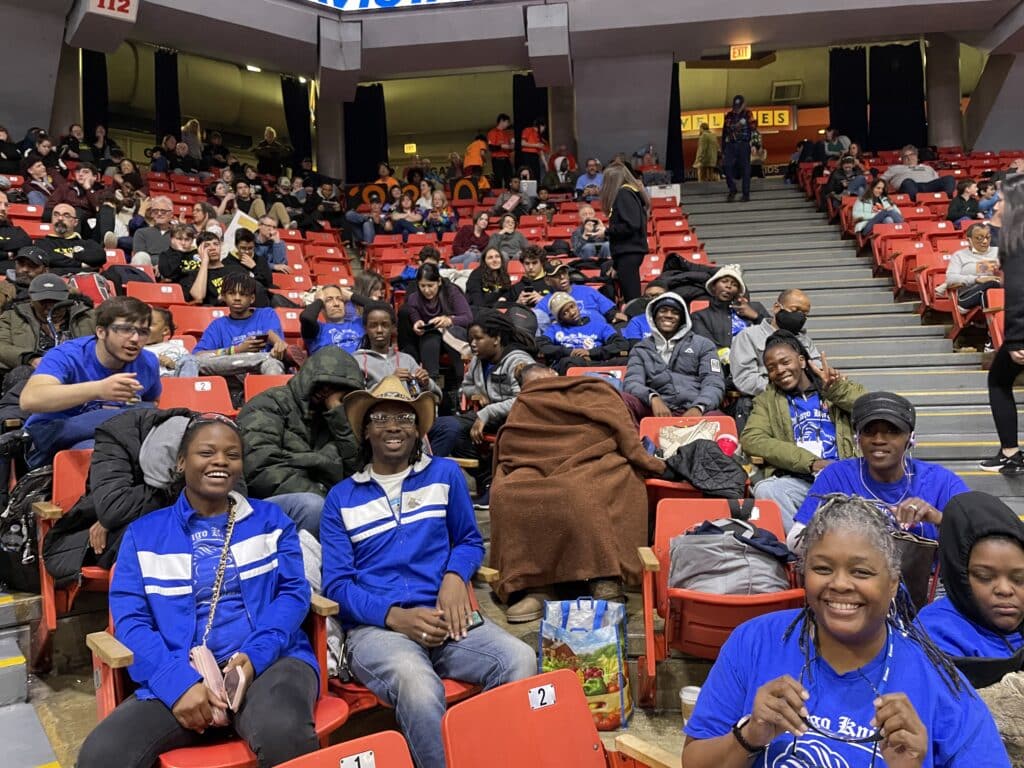
Both Jackie and Dieudonne have experience working with youth in STEM education, making them strong collaborative partners. Dieudonne is the CEO of the Global Leading Light Initiative, a non-profit in South Africa which supports young people in historically disadvantaged communities to acquire future proof skills, with the aim of reducing poverty and inequalities. Jackie is the founder and Executive Director of Agape Werks, Inc, a community based non-profit in Chicago with a mission to promote in young people an appreciation of math, science, technology, and engineering as strategic tools for success regardless of life circumstances.
The partnership between the students in Chicago and Port Alfred dates back to 2019, when Allo and Moore developed the “One Team Two Continents” concept after meeting through the Goldin Global Fellows program to explore cross-continental collaboration opportunities. This initiative envisions a youth-led, distributed team working together on robotics projects in an environment that fosters inclusion and cultural pluralism. The students from both continents convened under the banner of the Chicago Knights, a community based, borderless, and inclusive all-city FIRST Robotics team.
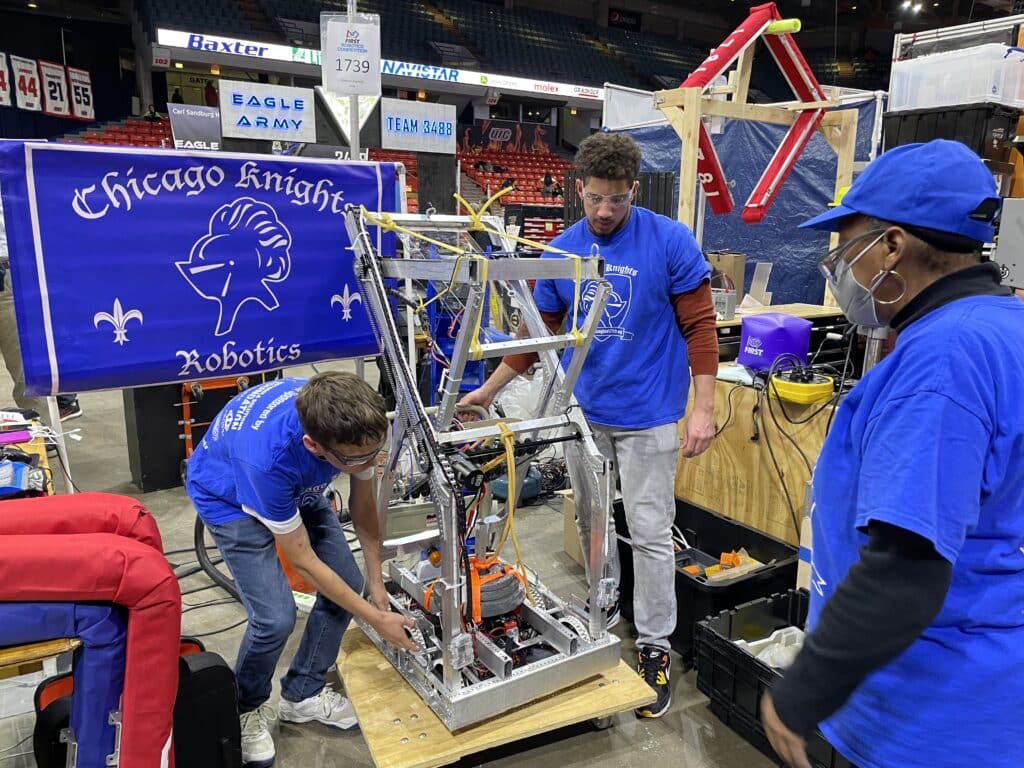
Prior to collaborating with Dieudonne, Jackie had been invited a few times to teach robotics in Uganda and South Africa. These opportunities did not meet her philosophy of teaching, which is to “not to become the expert in the room, but to work collaboratively with someone.”
Soon after Jackie and Dieudonne met, the pandemic hit and remote learning opportunities allowed for the students from South Africa to be involved in collaborative robotics programs. They collaborated remotely for an entire season of robotics competitions. Remote work did have its challenges, Jackie explains, “the way that I typically work really requires a lot of hand-on teaching.” While the virtual environment made it difficult for students to focus, especially in Port Alfred where they often faced the challenge of unstable internet connections and recurring “load shedding”, the students held on and kept coming back for robotics opportunities.
Things changed for the One Team Two Continents team when a grant from the U.S. Embassy's U.S. Mission to South Africa provided funding for students to travel between Chicago and Port Alfred. When applying for the grant, Jackie and Diedonne focused strongly on the fact that the kids from South Africa and Chicago would be working together as one team. Their project proposed to demonstrate the value of pluralism and social inclusion in a robotics environment. This allowed for the teens’ interest in robotics to be placed front and center while showing the value of pluralism and social inclusion through working together as a team.
The exchange between the students in Chicago and the students in Port Alfred went both ways, with the Chicago students having an opportunity to visit South Africa in October of 2022. Together the teammates built small robots and did exercises to develop capacity for working cohesively as a team.
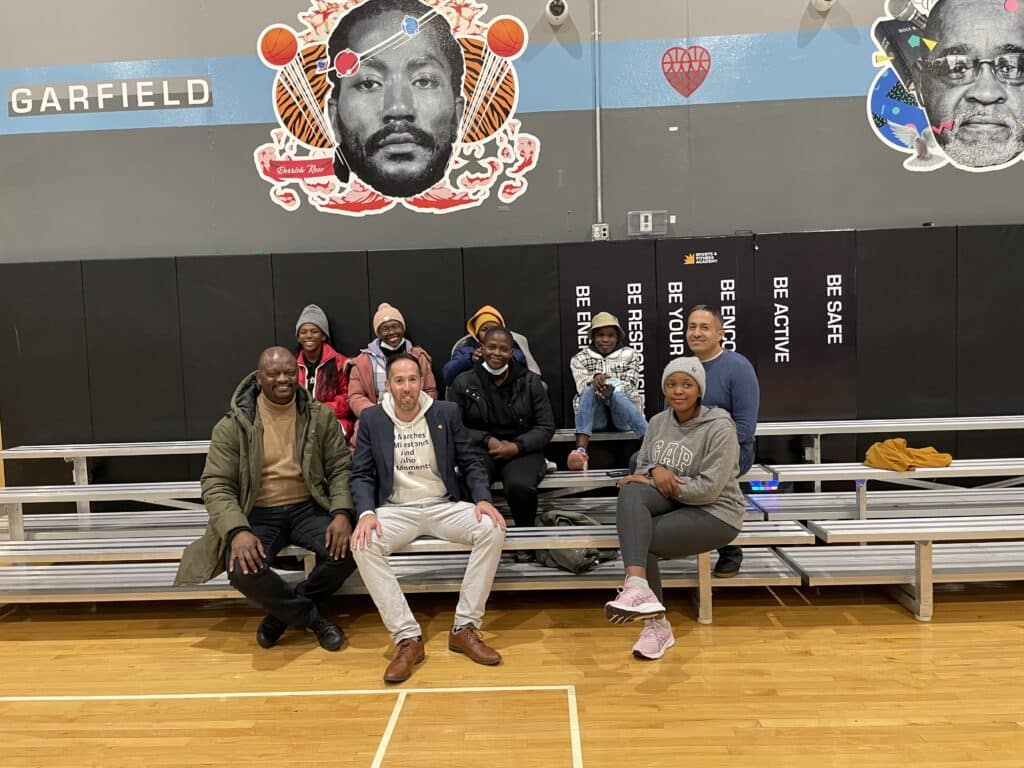
In one meaningful team building exercise, students were able to explore principles and practices of successful collaboration through a soccer game where the rules were altered to reflect the FIRST ecosystem’s values of “coopertition” and “gracious professionalism.” “Coopertition” is the practice of competing cooperatively in which a person will help their competition because the better they both are, the more they can do. In the same vein of competitive compassion,“gracious professionalism” is the idea of competing to the best of one’s ability, but to do it with grace and kindness. These two values harmonize well with Jackie and Dieudonne’s goals of pluralism and social inclusion because they encourage each member of the team to assess one another compassionately so that they can cooperate and work to each members’ strengths.
When the South African teens visited, they were taken on cultural tours of Chicago. These tours included all members of the team and many Chicago members visited places they had never visited. Students went to Little Village, Chinatown, and Robert Lindblom Math & Science Academy in West Englewood. Many of the South African students were surprised to see English as a secondary language in these neighborhoods, with the majority of signs being in Spanish in Little Village or Chinese in Chinatown. This encounter was particularly shocking to the adult South African on the trip who experienced apartheid, when assimilation to a dominant culture was expected. To see distinct Hispanic and Chinese cultural identities existing within a diverse society, and being celebrated by the community as a whole, was a new perspective and an example of the successes of cultural pluralism.
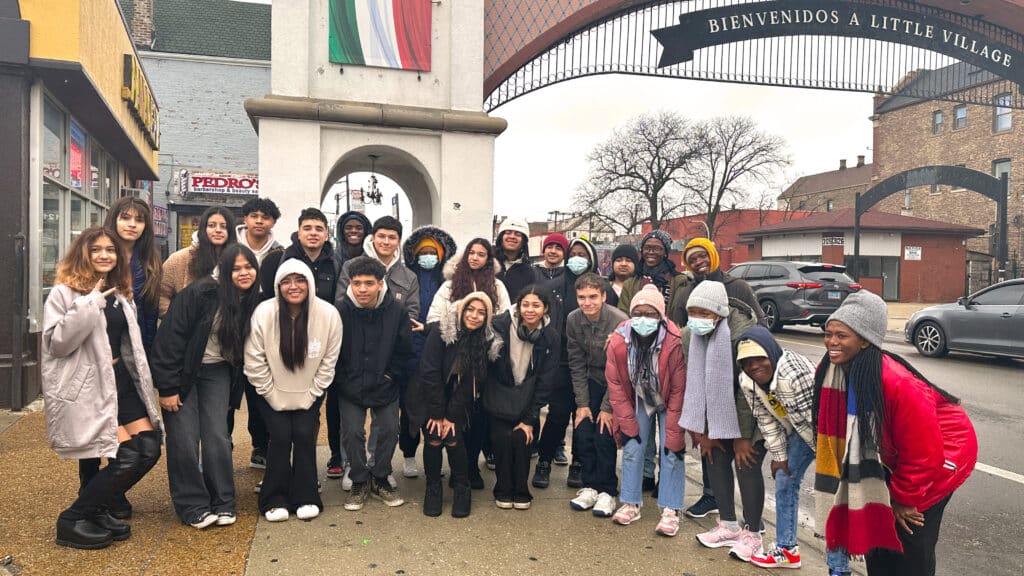
The teens who made up the Chicago Knights were incredibly dedicated to their team’s success, not only traveling internationally to learn robotics, but also sacrificing time from school and extracurriculars. The Chicago students missed Thursday and Friday for the competition, and a week of school to travel to South Africa in October. Hannah was a Chicago student who was new to the team this year. She was not able to travel to South Africa, but she worked consistently before and after the South African team arrived. For the competition, she took a break from her extracurricular activity of playing squash, missing a tournament to meet for robotics. This dedication to robotics helped the team members form close bonds and collaborate with one another and appreciate the diversity of the team.
The rules and guidelines for the FIRST Robotics competition came out in January, giving the team little time to build their robot in preparation. The 2022-2023 season of FIRST competitions was themed FIRST ENERGIZE, with activities encouraging the FIRST community to think about future energy sustainability. This challenge was inspired by the United Nations’ 7th Sustainable Development Goal, which is to ensure access to affordable, reliable, sustainable, and modern energy for all. The team built a mobile robot that was designed to play a custom game designed by FIRST. The robot uses a six-wheeled tank drive and is controlled remotely by a micro-controller called a roboRIO. It has an arm with a manipulator at the end which is composed of rollers that allow it to pick up and launch objects. The students built the entirety of the robot: interpreting drawings, measuring, cutting, drilling, and wiring electronics.
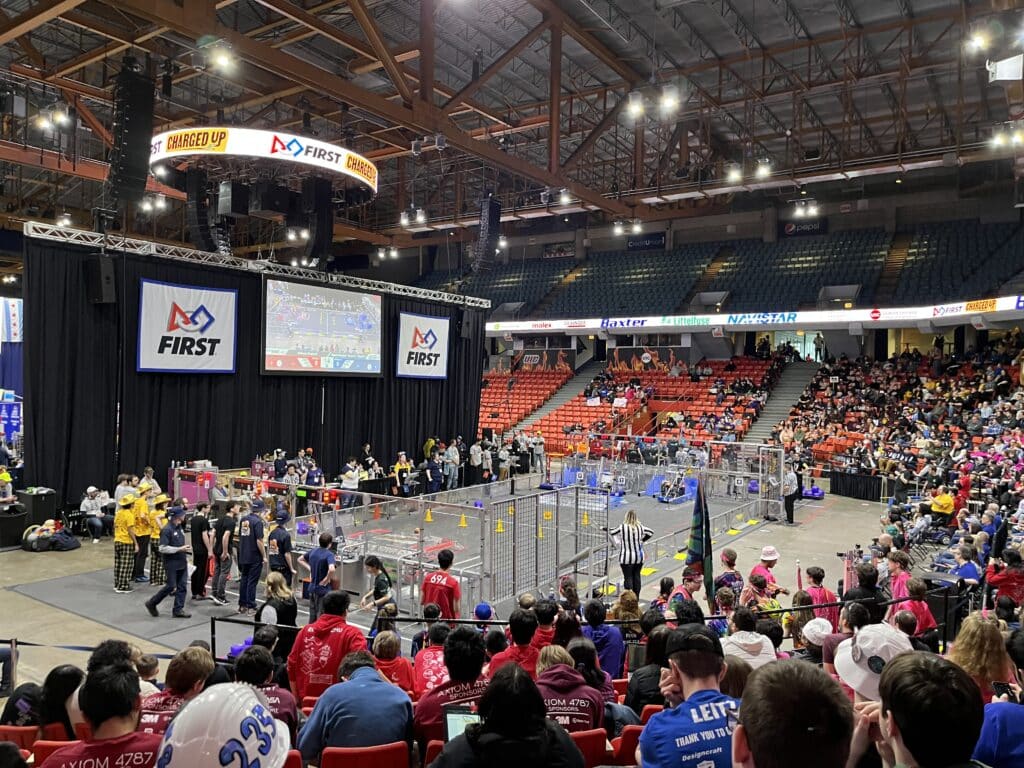
On the field were safety cones and inflatable spheres which needed to be gathered by the robots and moved to appropriate environments. Extra points could be achieved through creating links of particular objects within specific locations or by balancing the robot on an elevated platform with its teammates. Jackie and the Knights understood the game from a social perspective, referring to the manipulated objects as “cone people” and "square people” who could thrive by being placed together in diverse environments as a community which produces points as resources.
The team made an “Every-bot” design shared by the FIRST community which was designed to be accessible and constructible with basic tools. By focusing on the build, the team had a chance to get a lot of hands-on experience building by constructing the entirety of the robot in Chicago. The Chicago side of the team built an initial section of the robot, but when the South African students arrived they got to be a big part of finalizing the robot. Students learned skills and information on the sport to accomplish last-minute aspects of the build in the midst of the competition. One South African student named Litha came in without a great deal of hands-on experience but became a key member of the team working on electronics. She learned from mentors on the Knights and on other teams competing to gain the necessary skills to work on the electronics of the robot. Chicago students also stepped in to teach the South Africans what they had learned from prior builds. Reflecting on the process, Jackie noted, “I guess adversity builds strong bonds. We knew we had a deadline to meet, a very finite time to work on it, and they all worked together.”
Due to the timing of the South Africans arrivals and logistical challenges on the Chicago side, much of the building of the robot took place during the start of the competition. This came at the cost of missing the first day of competing, but provided bonding experiences and a lot of opportunities for the South African team members to gain the hand on building experience that they had been lacking. One student named Jalen, reflected on the building process: “We worked really hard. We would work from 9am-8pm because we had to build a whole robot in a week. We had to work quickly, make as few mistakes as we could, and stay focused.” Despite the rushed building process, the teens were very excited to participate in the competition and all came together to cheer when their robot made it to the competition floor.
As the teens on the Chicago Knights competed in the FIRST competition, they realized that cooperation was an essential part of the tournament. Many Chicago students went out of their way to teach South African students, who had limited experience building. For instance, Jalen was referred to as the “rivet master” for teaching the rest of the students how to use a rivet gun. Not only did teammates assist each other, but they were also helped by other teams. As the Knights crunched to build their robot, they were assisted by students from Lindblom to machine a ventilation pipe. Reflecting on her favorite memories working on the project, one student named Hannah reflected, “Cheering for our team at the competition was my favorite part. But we also got to go around and take pictures with other teams [...] I was shy to speak to other teams, but they were really nice and let me take pictures with them and their robots.” From start to finish, the FIRST competition was as much about compassion and collaboration as it was about competition, making it an excellent environment for cultural and intellectual exchange.
Promoting Justice for Detainees in Liberia
By John Kamma, Global Fellow from Liberia
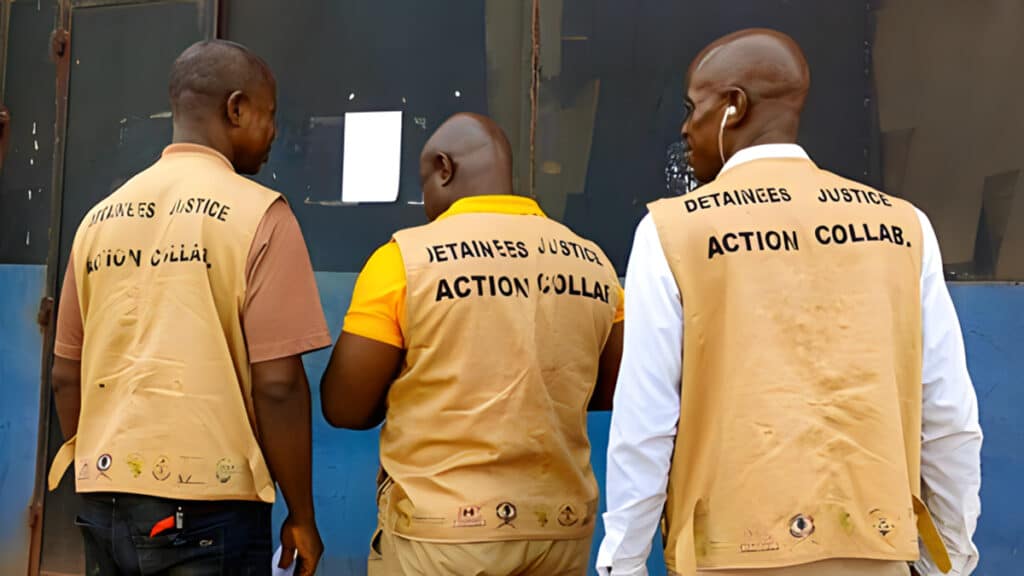
It is with great joy that I announce that I have won a €10,000 Euro grant from Catalyst 2030 to pilot a project focused on detainees in Liberia. I have already secured a permit from the Ministry of Justice to visit prisons and start working with detainees to review their cases. Together, with my local learning partners and the advocates, we will identify detainees whose rights have been violated and provide legal support to facilitate access to those rights.
“Today, we visited the Monrovia Central Prison and interacted with Prison authorities who were very pleased about our intervention to bring justice to the life of pre-trial detainees. This is a step toward our data collection process that will be used to advance evidence-based advocacy, demanding due process of law for pre-trial detainees in a competent court of jurisdiction.”—John Kamma
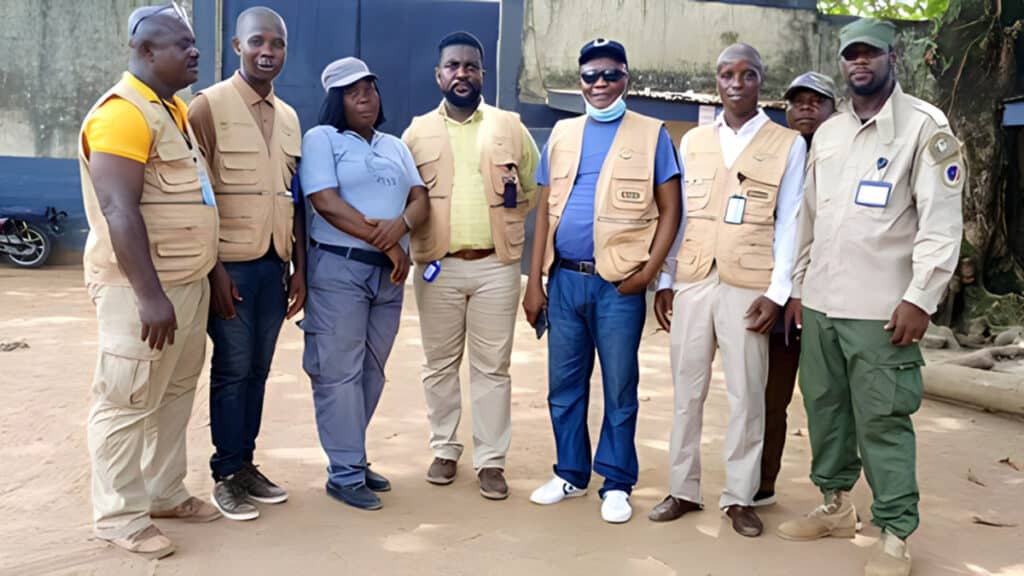
The project, Detainees Justice Action (DJA), seeks to; promote access to justice among detainees, support their integration back into the community, and provide sustained mental health support. We just started in Monrovia but the permit from the Ministry of Justice allows our project to scale across the country. The three-month pilot phase is now focusing on the identification of detainees whose legal rights were not met. Afterwards, we hope to start addressing the issues in court with support from the advocates.
Between June and December 2022, I was engaged in an extensive training program led by the African Civic Engagement Academy (ACEA). During that period, I had an opportunity to learn with over 2,000 participants coming from across the African continent. I applied for this opportunity because I understand that our work in the community requires constant learning, research, and networking. Throughout the program, I was exposed to knowledge about basic principles of civic engagement, inclusion, media management, non-profit management, and program design.
The whole program was conducted online, featuring multimedia content designed to expose us to different theories. I also learned a lot about practical applications from other participants. We exchanged experiences based on our unique actions in our respective communities. I was particularly impressed with the lessons surrounding the need for partnerships and collaborations. We learned that extending partnerships with the government and other civil Society Organizations can increase our chances of success in tackling the issues we face.
“Ensuring that the government does not see you as an obstacle is key to improving relationships, obtaining support, and achieving collective goals. Sometimes the government already possesses important information that is necessary for our work to be successful.” — John Kamma
Last year I was training at the African Civic Engagement Academy and whilst there I submitted a Civic Engagement Action plan detailing the work of Detainees Justice Action. This led to my recent invitation to attend the 2023 ACEA Summit which takes place tentatively on March 17-19 in Nairobi. I am so glad for this opportunity and I’m looking forward to it.
“The reviewers at ACEA selected me for the Summit because they were impressed with the quality of my Civic Engagement Action Plan and with my participation in the ACEA training last year.” —John Kamma
How Ibali Lam is Empowering Women Entrepreneurs in South Africa
To mark this year’s International Women’s Day, the UN has chosen the theme of Technology and Innovation for Gender Equality – an area familiar to Dieudonne Allo (Global Fellow from South Africa) who is leading the Ibali Lam program through his organization Global Leading Light Initiatives. Ibali Lam is an exceptional example of empowering women through technology, by providing women entrepreneurs the digital tools and innovative approaches to storytelling to connect with existing and new customers and investors.
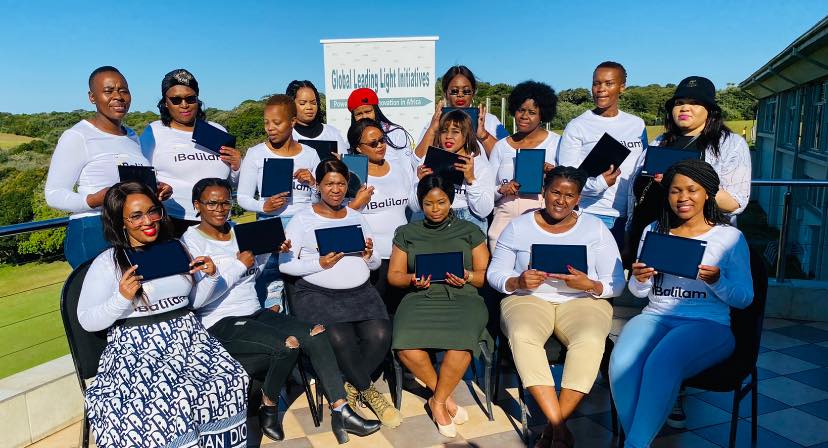
The project uses business storytelling, frugal innovation, investment readiness, and networking to help women whose businesses have been affected by COVID-19 to pivot new online models and engage existing and new audiences. The program also offers weekly roundtable sessions and one-on-one-coaching.
To mark International Women's Day, Global Fellow and CEO of Global Leading Light Initiatives Dieudonne Allo and Program Coordinator at Global Leading Light Initiatives Fatima Momoti share their insights on how their Ibali Lam program is improving women's lives, mainly through economic empowerment.
Marking International Women's Day
Fatima begins by elaborating on how women in today's world cannot interact without technology and storytelling.
“We need to empower ourselves with technology. If we are not going to move with the wave of technology, we will unfortunately get left behind and be stuck in that mentality of a previously disadvantaged group. Women need to be more in the forefront of development and innovation.”
She further elaborates on how the Ibali Lam initiative lifts women to achieve this.
"We are mainly in a rural area, so for these women to have a wider reach increases their income for their business. We come from setups that mainly have four to five people in a house, so having extra revenue means they can feed themselves and their families."
According to Fatima, when women beneficiaries understand what storytelling is they are able to better understand their customers and better craft their business online by using various social media platforms.
"Another component of the program is to ensure that we have a more holistic approach in helping these businesses accelerate and then from there help to set up the business aspect, the digital transformation."
Then, through investment readiness, women are introduced to potential investors.
"Women have been mainly talking to customers, and now it's changing from that to a potential investor. So, they get into that space when they can pitch to investors and get feedback."
This leads to more opportunities and stability for them.
Dieudonne places emphasis on women’s economic empowerment and its core role in the Ibali Lam program and importance for social justice
"Technology is advancing today, and every woman must empower herself to bridge the gap. Technology is a potent tool for women to transform themselves and empower themselves economically, because Ibali Lam is really about economic empowerment" -- Dieudonne Allo, Global Fellow from South Africa.
Gather as an Inspirational Path
Dieudonne highlights that Ibali Lam drew inspiration from the Goldin Institute’s GATHER program.
"The Gather program of Goldin Institute inspired the model of Ibali Lam. Women, especially in this part of the world, do not have access to technology, so we give them access; we provide internet data to them so they can access the online platform. Women get tablets, too.” he says.
Today, Dieudonne adds, one cannot interact without technology.
“Another thing without which you cannot interact is storytelling. For us, as Africans, storytelling is a very vital part of our culture. So, combining storytelling and technology women can connect to people and make them see value in their outputs and businesses.”
Ibali Lam’s Future Projects
Ibali Lam has to date supported 37 women and will continue to support women in other forms too. Concluding our conversation on a positive note, Dieudonne shares that they are working on a new project which will launch soon.
"Working with women, we can equip them with technological tools and their businesses can go online, but if they do not have access to finances, they cannot grow their businesses."
So, to support them, Ibali Lam has developed a new support program that will provide micro-grants for its alum. Follow Ibali Lam's work through their website.
A Look Back on 2022: a year of growth and strengthened solidarity around the globe
By Jassi K. Sandhar, Global Research Fellow
As we wind down the end of another year, I am amazed at how much we have achieved within our network and the strides we have made, both as individuals and as a collective. Our global network and partners continue to accelerate their efforts to attend to the most urgent and pressing needs of their communities. We witnessed increased levels of solidarity, more calls for positive action, strengthened collaborations and shared leadership. We end this year with 150 alumni (representing 40 countries) who have graduated from our Fellows Program and are now part of our wider network.
We have compiled a month-by-month timeline of the achievements of our grassroots leaders below. Despite some challenging times, our network continue to respond with compassion, empathy, and commitment to social justice. We end the year by thanking our dedicated supporters whose commitment made many of this year’s successes possible. We look forward to your continued support for community-driven social change in 2023!
January
We commemorated the 12th anniversary of the Haiti earthquake (which had a devastating and lasting impact on the country), by sharing an update on the current situation and launching our “Global Solidarity with Haiti campaign” to support our partners Daniel Tillias and Malya Villard-Appolon, who are on the frontlines responding to those most in need.
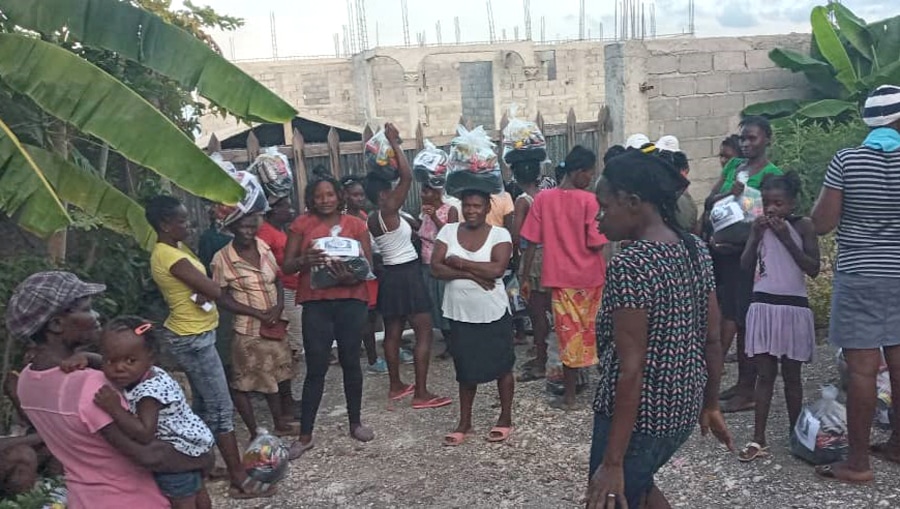
Our alumni in Liberia, Jennifer Henshaw, and her organization LEGAL which works to support the LGBT communities in the country, celebrated their 10th anniversary. Jennifer provides a reflection on their 10-year journey, including their long-standing achievements and ongoing challenges.
January was also a month of collaboration between our global partners. Our partners in the Philippines, Andy Alegre and Susana Salvador-Anayatin, joined forces to deliver urgent humanitarian relief to families following Typhoon Odette in the Philippines. Our 2021 Global Fellows Mathias Ngong Njoya (from Cameroon) and Gopal Iyer (from the UK) also collaborated to host a two-day workshop which brought together 30 youth from 15 countries in Africa and Asia. The workshop was designed to help and guide youth on professional development planning.
February
This month, our 2021 Global Fellows provided an update on their collective campaign; 24 grassroots leaders created a joint fundraising campaign to raise money to support their continued social change projects in their countries. Collectively they raised $12,000. John Kamma, 2021 Global Fellow from Liberia, used those funds to initiate a community clean-up day in Glass Factory community (which is an overpopulated but underserved community).
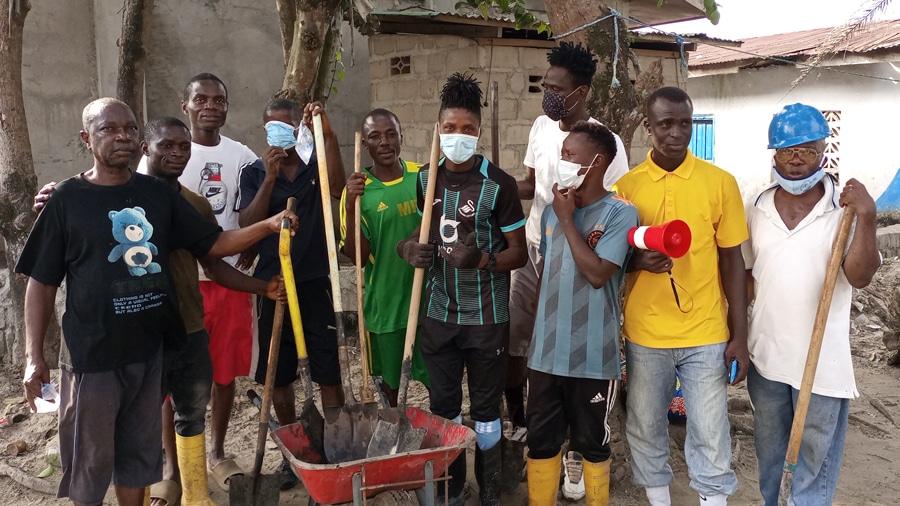
This month, the Chicago Peace Fellows Mutual Aid Collaborative also held a press conference on the anniversary of the assassination of Malcolm X to amplify the themes of their open letter, A Pathway to Anti-Racist Philanthropy.
2021 Global Fellow from The Philippines, Andy Alegre, commemorated International Day of Prayer and Awareness Against Human Trafficking by organizing an online prayer session together with churches and various organizations using a special vigil of prayer specific to this event. This month, Chicago Peace Fellow Jamila Trimuel’s organization also hosted their annual LOV Day, a day dedicated to “show love to our Black girls!”.
March
We welcomed our 2022 Chicago Peace Fellows! 14 grassroots leaders representing 14 different communities across Chicago joined the Fellows program to learn, share, and collaborate together as a Community of Practice.
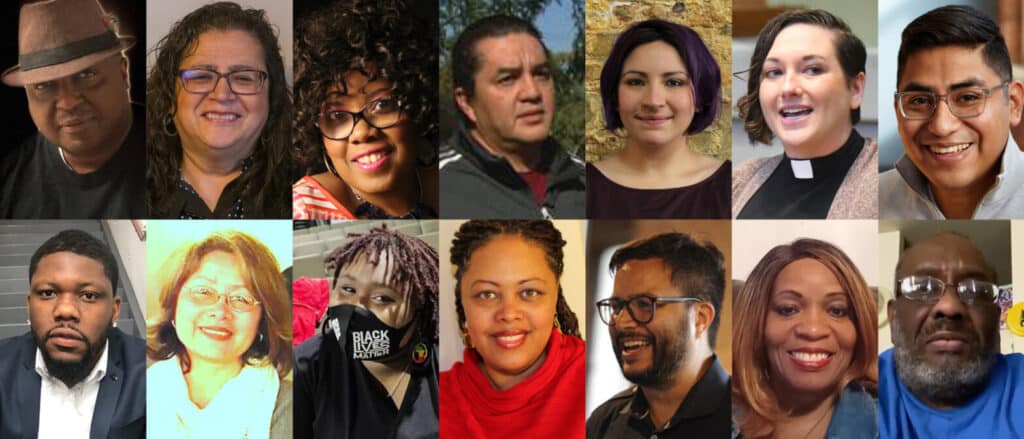
Our 2021 graduates of the Chicago Peace Fellows Program also organized and enjoyed a retreat, to collaboratively focus on rest, restoration and reflection in beautiful surroundings and to strengthen the bonds between them.
We also saw collaborations between DePaul University (Chicago) and Global Fellow Berry Behr (South Africa) which helped document oral history testimonies to capture the interfaith efforts from leaders on the front lines of ending apartheid.
April
Goldin Global Fellow Munyaradzi Dzimunwe from Zimbabwe partnered with She Trades to provide training for women entrepreneurs in the country to help them sell their products on international markets.
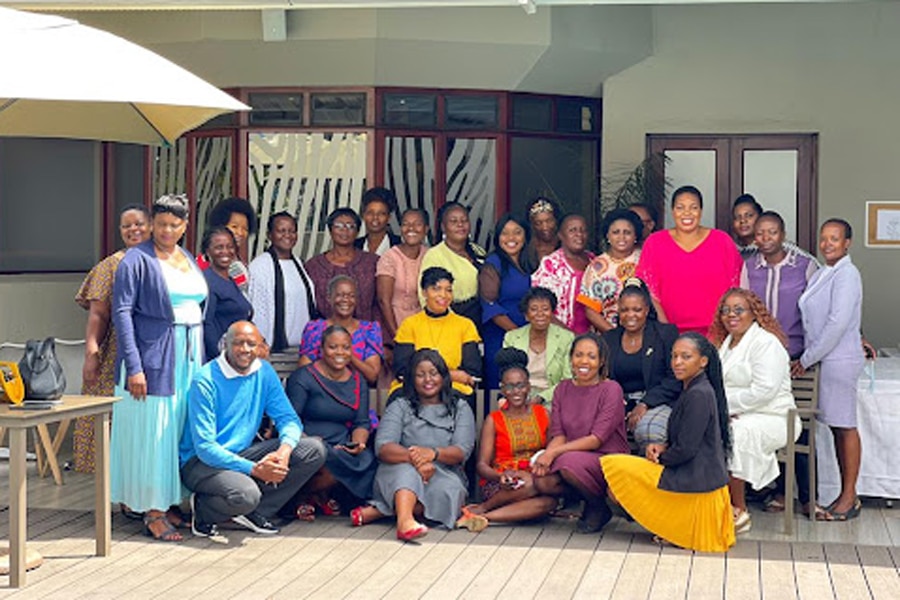
Goldin Global Fellow Nicholas Songora Odoll also provided an update on the critical work of the Manyatta Youth Entertainment (MAYE) in the coastal counties of Kenya to promote social accountability, civic education, and social justice using creative arts. Chicago Peace Fellow, Annette Kelly, also helped host a series of workshops on Violence Prevention in Chicago through her work with the Chicagoland Vaccine Partnership (CVP) in the communities hardest hit by COVID and violence.
The 2022 Chicago Peace Fellows also met for the first time to begin their Fellows Program; the launch brought together a powerful community of activists, artists, social workers, and community leaders representing 14 community areas on the South and West sides of Chicago.
May
Chicago Peace Fellows provided 300 Mother's Day bouquets to mothers who have lost their children to violence in Chicago, bringing comfort to families impacted by gun violence and raising support for peace building projects in Chicago to prevent these tragedies in the future.
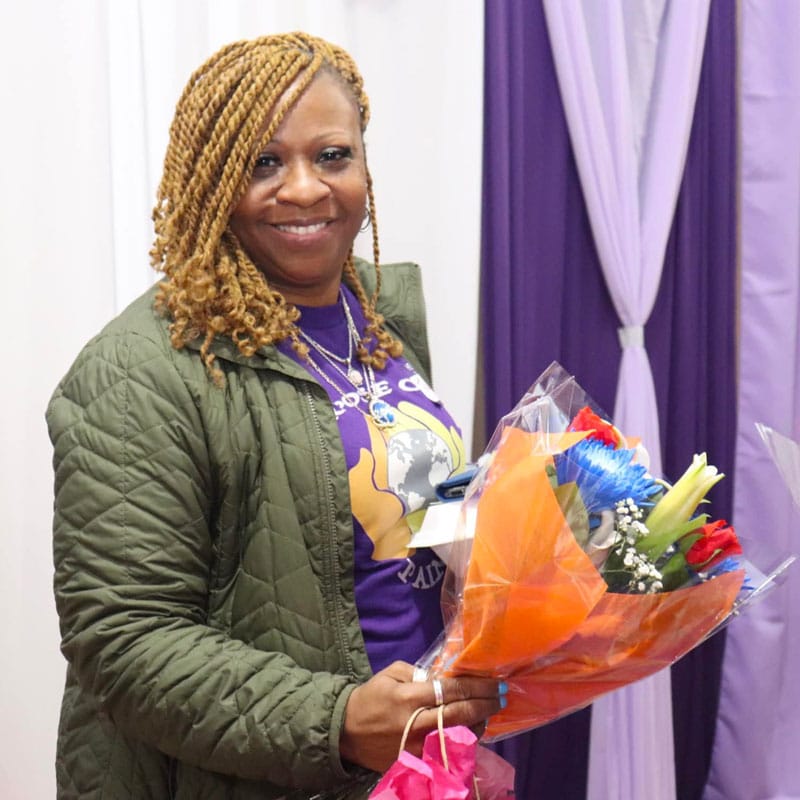
2018 Goldin Global Fellow Cynthia Luvlee shares an inspiring update from Shyne San Diego, sharing the principles that powered the exponential growth of the Shyne Survivor Business Network™ which recently enrolled its 50th survivor entrepreneur!
We also received an update from Global Fellow from Liberia, John Kamma, who worked in collaboration with Catalyst 2030 and his team to mobilize his community to improve health and sanitation and hosted a conversation on narrowing the "justice gap" in the Glass Factory neighborhood.
Mahdar Tahir, Goldin Global Fellow from Malaysia and founder of the Crescent Collective, shared his insights as a panellist for a discussion on religious freedom for which he spoke about the role of religious leaders in building social harmony.
June
In June we welcomed 14 grassroots leaders from around the world onto our 2022 Global Fellows Program! This is the third cohort embarking on the four-month program, where Fellows worked and learnt together as a Community of Practice.

The Chicago Peace Fellows Mutual Aid Collaborative held the Second Annual Concert for Peace at the Hatchery on June 4th, celebrating the artistic accomplishments of their communities and a shared commitment to improving their neighborhoods. The Mutual Aid Collaborative also worked to address an increased demand for blood from Black and Brown donors through holding the #OurBloodMatters blood drive as part of the ongoing project called The Safety Net.
Chicago Peace Fellows hosted a conversation at the Firehouse Community Arts Center on June 3 2022 to discuss community safety and crime data with the University of Chicago Crime Lab as part of the Mutual Aid Collaborative’s Civic Leaders series. This month, Chicago Peace Fellow Pilar Audain also partnered with theater company Collaboration to design and host Moonset Sunrise, a theatrical experience rooted in healing, self-care and collective growth through song, storytelling, dance and ritual.
To solidify and spread the benefits of the peace agreement in the Southern Philippines, Global Fellow Lo Ivan promotes the need to lean into the indigenous culture of volunteerism, known locally as "bayanihan", as a peace multiplier that shapes the Bangsamoro youth as proactive agents of peace, development, and social transformation.
July
In July we launched our first ever Global Fellows Program in Spanish! We welcomed 17 grassroots leaders and activists onto the program, who undertook the curriculum and engaged in the journey together in Spanish. These Fellows live and work in Argentina, Bolivia, Chile, Colombia, Haiti, Mexico, Spain, the United States and Venezuela.
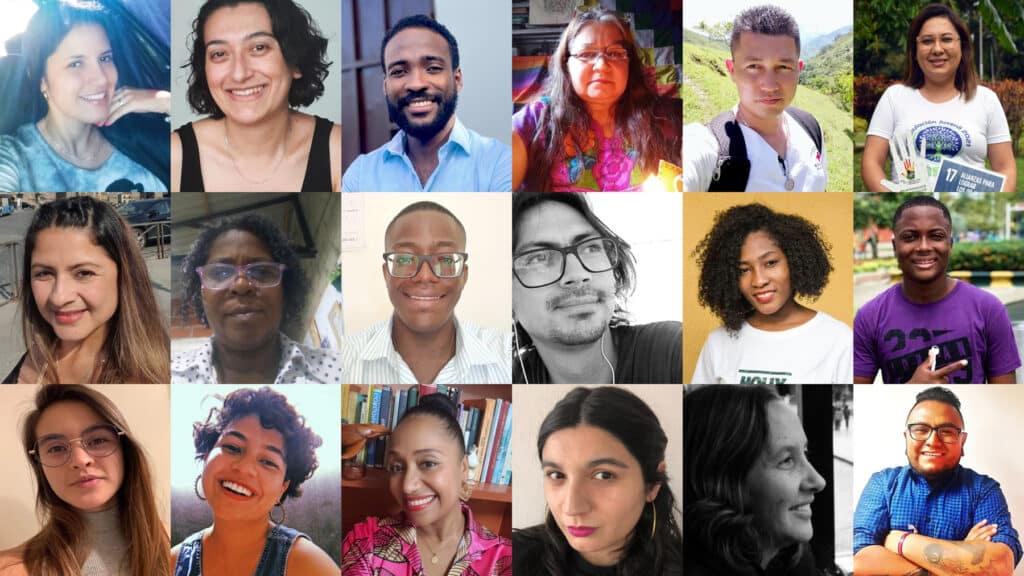
Chicago Peace Fellows Mutual Aid Collaborative hosted a Civic Partner Series conversation with University of Chicago Medicine Violence Recovery Team to learn about a unique public health model of violence interruption. And Global Fellow from Detroit, David Metler, provides insights into Swingset Activism and the idea of social justice education inspired by childhood. He proposes that we have much to learn from children who can help us integrate our activism into our lives and embrace the elements of playfulness, joyfulness, loving-kindness, presence, creativity, and our capacity to re-imagine what is possible.
August
The Chicago Peace Fellows Mutual Aid Collaborative this month carried out two activities. They launched the Safety + Cycling Team to tackle violence which occurs during road and traffic accidents, by providing bike helmets and safety tips at community events.
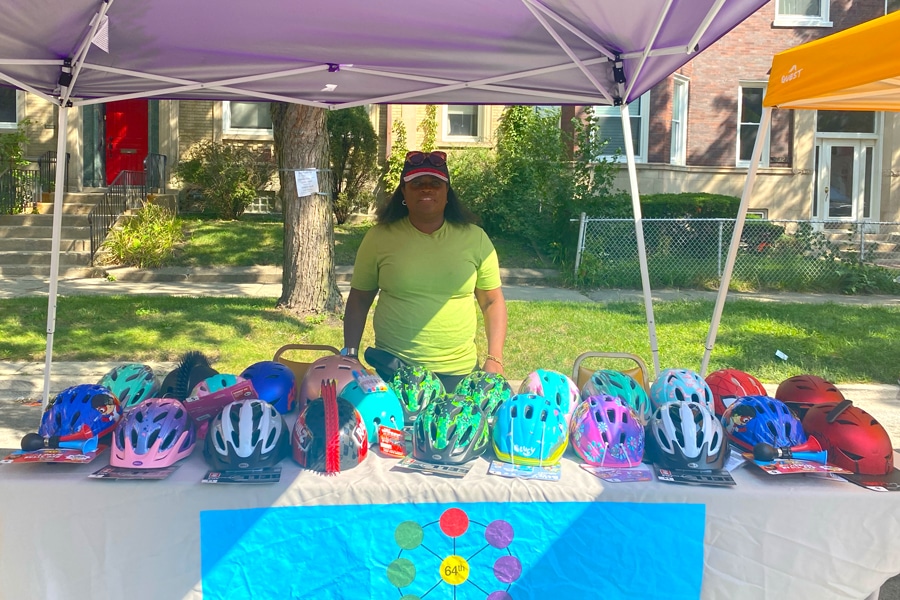
The Mutual Aid Collaborative also hosted a conversation with Dr. Andrew Papachristos to build connections and learn how the science of social networks can be used to understand and target support to people at the highest risk of becoming a victim of gun violence.
2019 Chicago Peace Fellow, Pastor Robert Biekman, piloted a Community of Practice utilizing the GATHER Platform to foster peer-to-peer learning amongst newly ordained pastors with the Evangelical Lutheran Church of America (ELCA). And Global Fellow from Argentina Diana Rocio Gomez Torres, explored the emergence of social movements across South America and bring visibility to the history and memory of these strategies of practical and symbolic resistance.
September
In September, our Fellows around the world embarked on several peacebuilding projects in honor of International Day of Peace 2022. These activities included: The launch of an apprenticeship program for Children Born of War in Uganda, using soccer to promote peace and reconciliation in Colombia, creating a new generation of youth leaders working on peacebuilding in Israel, Freestyling for social change in Colombia, and Peace Day activities from three Global Fellows in South America.
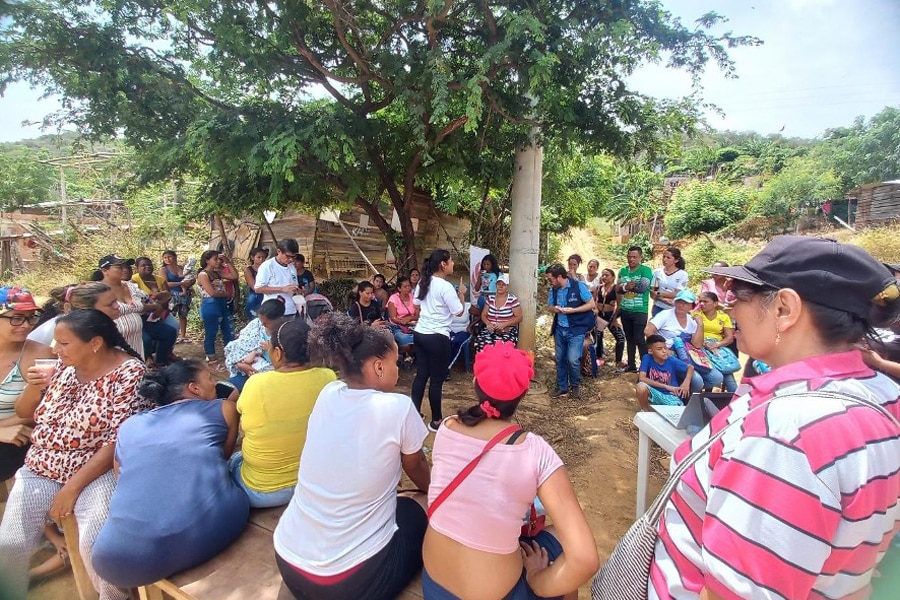
This month we also saw the graduation of the 2022 Chicago Peace Fellows! After embarking on a five-month learning and sharing journey together, their achievements were celebrated at the Chicago History Museum.
October
This month the Goldin Institute turned 20! For the past two decades the Goldin Institute has adopted an approach which is grassroots-led and embedded in kindness, compassion and learning, from everyone but most especially those closest to the issues. We promote the voices of those excluded voices who often have the most at stake in making progress and ensure that they have leadership roles in every social change movement. Which is why it is extremely exciting to celebrate 20 years of the Goldin Institute.
The Chicago Peace Fellows Mutual Aid Collaborative also launched Generation NOW, an idea conceived by Messiah Equiano, a 2021 Chicago Peace Fellow, which will provide opportunities for young people to write and produce a teen talk show addressing everyday issues that teenagers face. We also celebrated the Chicago Day of the Girl with Chicago Peace Fellow La’Keisha Gray-Sewell’s organization (Girls Like Me, Inc) hosting an event to both celebrate Black girls in the city and ensure their sense of belonging.
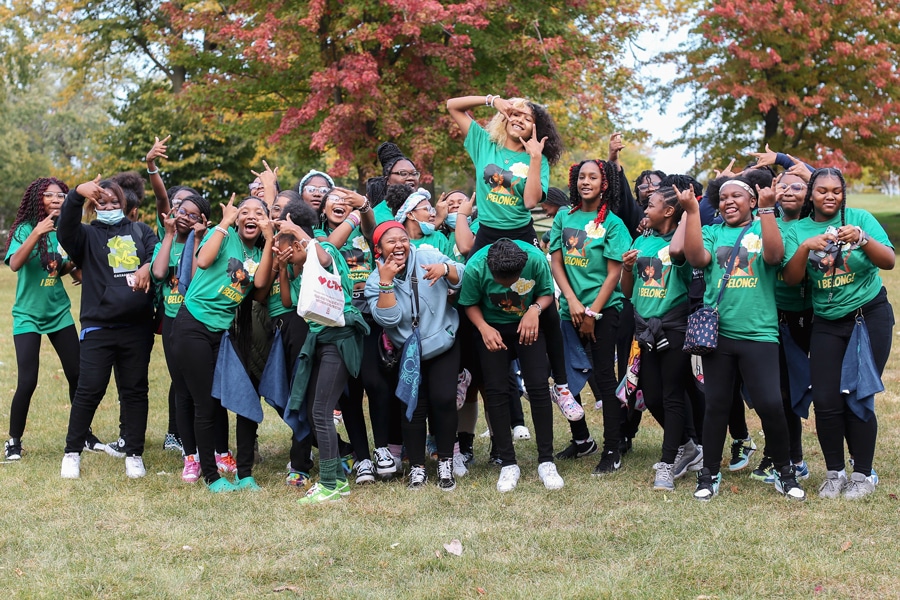
The first annual Sukkah Design Festival was also held this month, on October 9-16, showcasing North Lawndale’s Jewish history and providing social services to the community. Reshorna Fitzpatrick, 2019 Chicago Peace Fellow and Executive Pastor of the Stone Temple Baptist Church, was a member of the organizing committee, which included both community-based organizations and design firms.
November
Our 2022 Global Fellows (English-language cohort) graduated from the Gather program! At the graduation ceremony on 4th November, the 2022 Fellows demonstrated their achievements and shared their aspirations, recognizing how much stronger they now are together.
Global Fellow Oluchi Uzodimma from Nigeria also provided an update on the devastating impact of the recent flooding in Nigeria which has displaced more than 2 million people and damaged over 200,000 homes.
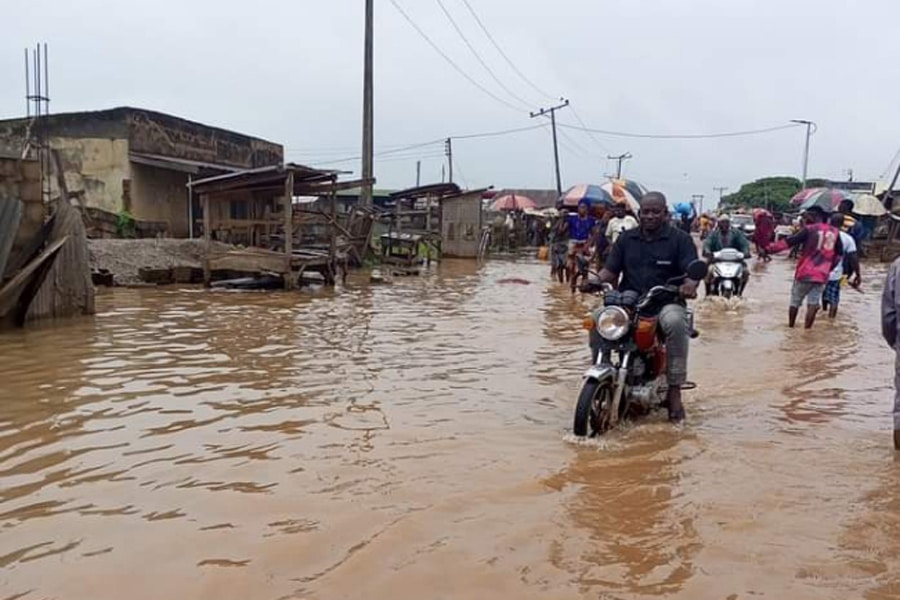
December
As we wind down to conclude the year, we were honoured to celebrate the achievements of the first Spanish-speaking cohort at their graduation ceremony on December 10th. The ceremony included performances in the form of song, freestyling, music, and poetry and reflected on what the Fellows had achieved, individually and collectively.
We remain humbled and honoured by the achievements of our global network of Fellows and we have much to be thankful for, especially the support of our global network of friends and colleagues. We would like to give a special thanks to all our sponsors and supporters for ensuring our leaders were able to continue their much-needed activities throughout the year.
Celebrating 20 years of grassroots leadership and social change
By Jassi K. Sandhar, Global Research Fellow
It is very rare to find organizations like the Goldin Institute. As an employee of the Institute, I promise this is not a biased opinion. Having worked in the non-profit sector for 12 years, being involved in various social justice and human rights projects, the Goldin Institute has stood out as an organization which embodies principles of justice, fairness, equity, and kindness both within the Institute itself and in the work we do.
The importance of adopting grassroots approaches in social justice work is becoming increasingly recognized, but the approach taken by the Goldin Institute over the past two decades goes beyond that. It is grassroots-led and embedded in compassion, kindness and learning, from everyone but most especially those closest to the issues. We promote the voices of those often excluded who have the most at stake in making progress and ensure that they have leadership roles in every social change movement. Which is why it is extremely exciting to celebrate 20 years of the Goldin Institute.
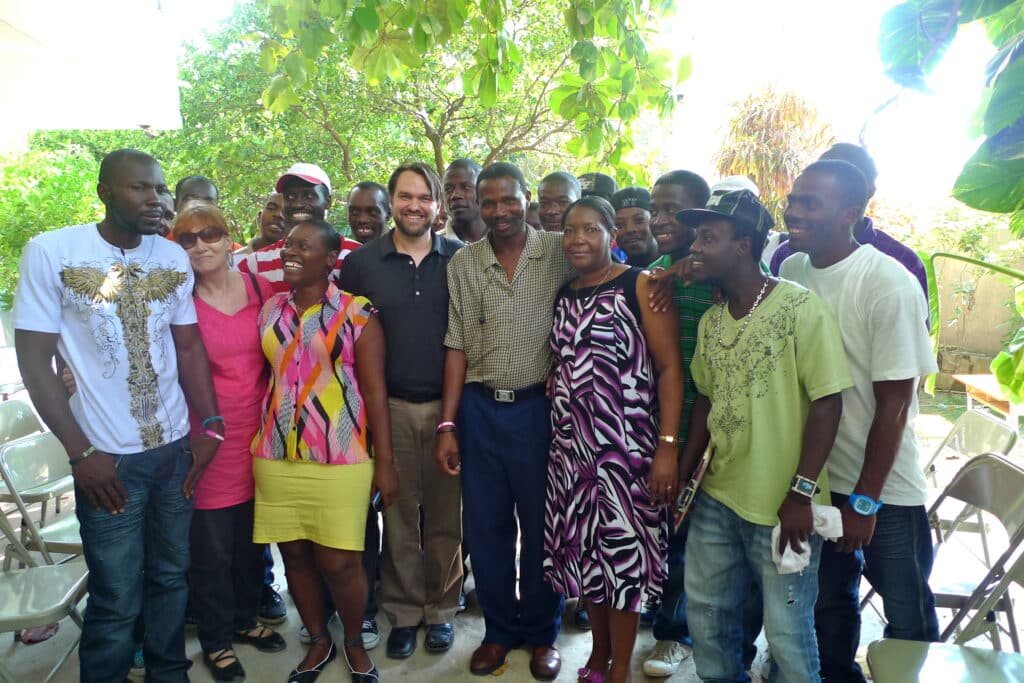
Our commitment to community-driven social change was foundational from our very inception. In October 2002, grassroots leaders from over 25 cities around the world convened in Chicago to learn from each other to collaboratively determine the mission, values and strategy of what became the Goldin Institute. The Goldin Institute was born through this conversation as an enduring platform to provide grassroots community organizers with tools and support they need to build meaningful partnerships within and between their cities. Fast forward to today, the Institute has expanded its reach to 150 Alumni leading change in 40 countries (and growing)!
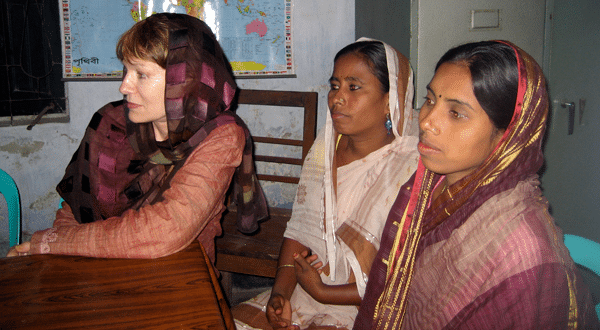
The last 20 years have taken us on an inspiring and incredible journey. We have worked with grassroots leaders in over 50 countries on issues such as:
- Child Soldier Reintegration in Uganda: In the discussions about disarmament, demobilization and reintegration of children used as soldiers in the conflict in Northern Uganda, the voices and perspectives of former child soldiers have too long been ignored. Former child soldiers themselves led a ground-breaking oral testimony process by interviewing over 150 of their peers and together reflecting on common concerns and shared aspirations that led to the creation of YOLRED, the first reintegration and support organization designed and run by former child soldiers.
- Addressing the Water Crisis in the Philippines: In war-torn Mindanao, over 70% of the population lacks reliable access to safe drinking water. Through the leadership of Global Associate Susana Anayatin and her team, over 40,000 people now have access to safe water in the region through the installation of water wells at over 140 local schools. In addition to providing a critical resource, this project brings together all sides of the conflict who are working together to “win the peace”.
- Tackling Gender-Based Violence in Haiti: Since the January 2010 earthquake in Haiti, women and girls living in the internally displaced persons camps face alarming rates of rape and other forms of gender-based violence. Through the leadership of Global Associate Malya Villard’s and KOFAVIV, men have joined the movement to provide security and advocacy to end all forms of gender-based violence in Haiti.
- Improving Microcredit in Bangladesh: The current global debate about the efficacy of microfinance is marked by the absence of those who have most at stake in the controversy: loan recipients. The Goldin Institute worked with partner organization Nijera Kori to lift up these voices, most often marginalized women, and restore their perspectives, insights and aspirations to the discussion, leading to the return of indigenous community support systems and greater regulation of the microfinance industry in Bangladesh.
- Mutual Aid Collaborative in Chicago, USA: Today, Chicago is stained by an enduring legacy of racial injustice that is laid bare by the disproportionate impact of the twin pandemics of violence and COVID-19 on our communities on the South and West sides of Chicago. In response, the Chicago Peace Fellows launched the Mutual Aid Collaborative as a model of the structural changes they seek, practicing a model of shared leadership, collaborative decision-making and collective action.
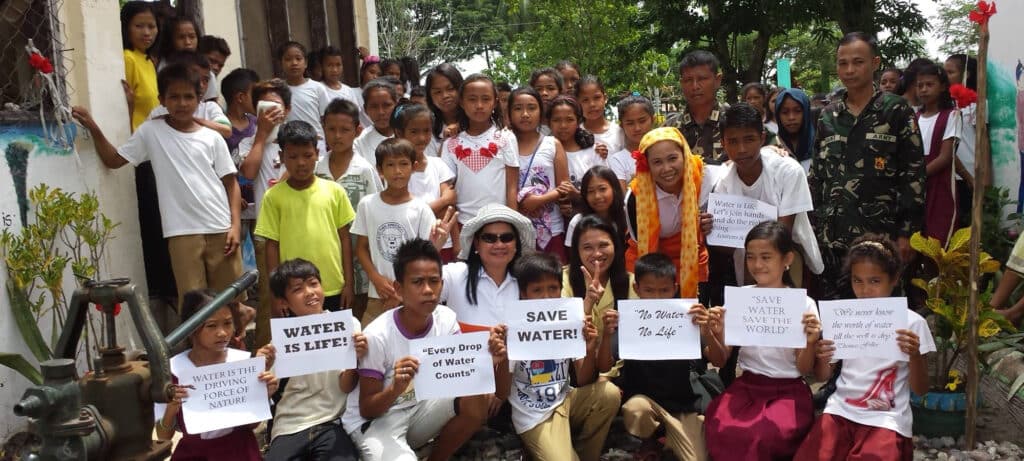
In 2018 we made significant strides in facilitating a global network of community leaders through launching GATHER, a tablet-based mobile learning tool to empower communities of practice. GATHER allows peers to learn, work and reflect together using practical tools. That same year, the Institute launched the Global Fellows program, an international cohort of 20 Fellows who collaborated with one another through a progression of learning about new theories of community engagement, practicing these ideas in their own areas, and reflecting together as a global community of practice.
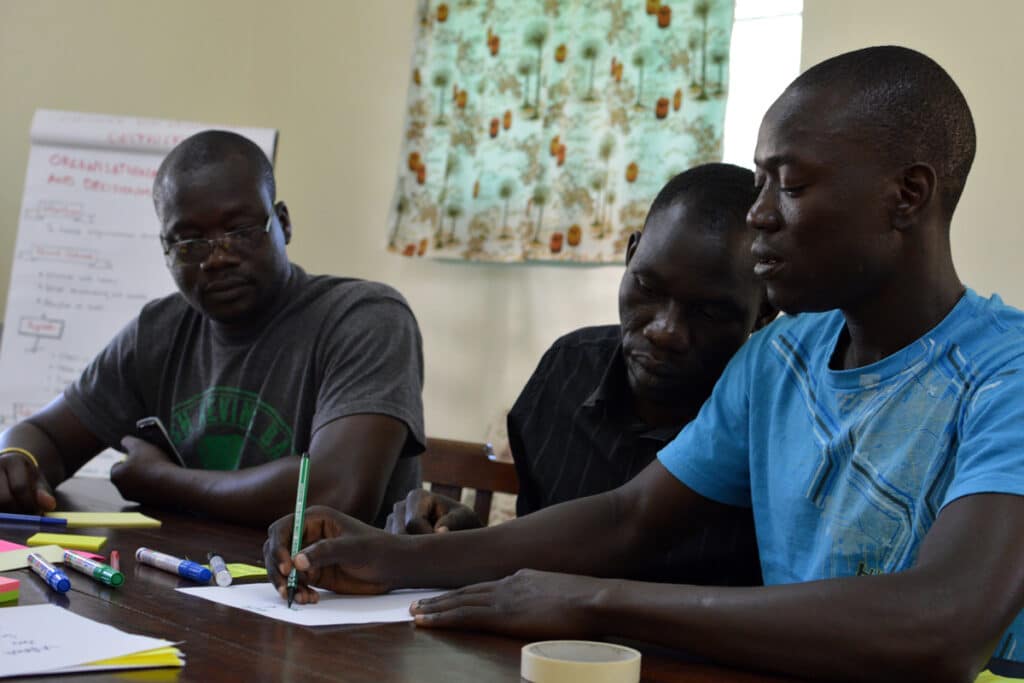
The success of the 2018 pilot has seen the GATHER course run annually with the Chicago Peace Fellows program and the Global Fellows program and, to date, we have trained 150 grassroots leaders in 40 countries in the GATHER curriculum. These grassroots leaders are local community or civil society leaders and practitioners, and represent a diverse group of backgrounds, ages, genders, and locations, and work on a range of pressing and urgent social justice issues. We are excited to continue this international Fellows program and excited to see what we can achieve together in the next 20 years.
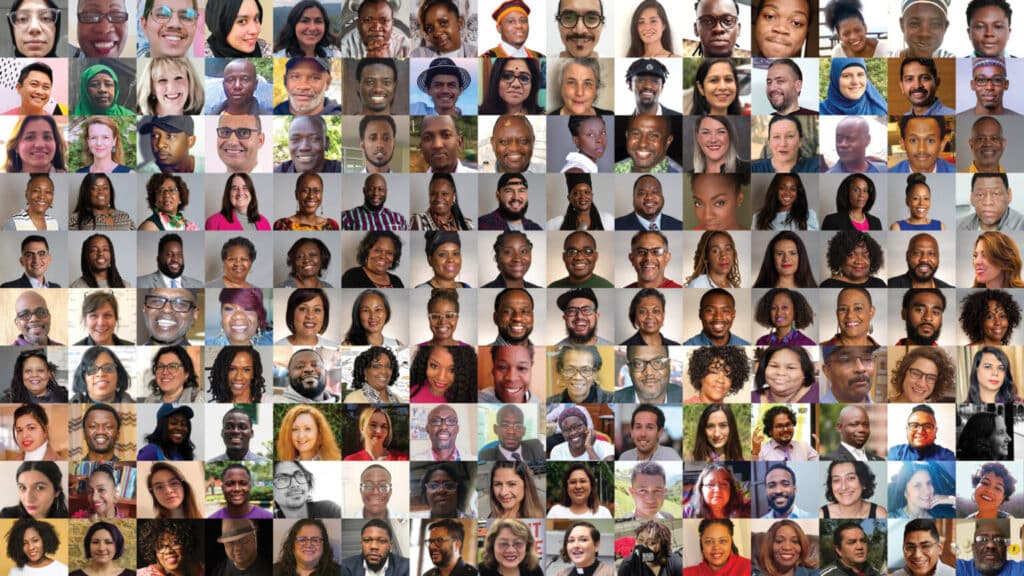
We thank you for sharing the last 20 years with us; we are particularly thankful for the continued commitment of our supporters who have stood beside us and ensured the vital work of our global network continues.
“Malya Villard Appolon, the founder of KOFAVIV (women's commission of victims for victims in Haiti), wishes the Goldin Institute a happy 20th anniversary for the good work it is doing around the world. It is because of the Goldin institute that KOFAVIV still exists today. It is still helping women who are suffering from tragic violence under armed gangs who are doing violence in all forms especially sexual violence that does not give chance to neither women nor girls. I will never regret that day Goldin Institute came our way. I am very proud of the Goldin Institute. I urge all organizations in the world to support Goldin to continue to bring change to the most vulnerable people within the Haitian society and other global communities. Thank you.” - (Malya Villard Appolon, Global Associate from Haiti).
Unity, Peace and Reconciliation Through Soccer
By Omar Arturo Diaz, Goldin Global Fellow, Colombia
The “Peace and Unity festival” was initiated to use football as a fundamental element to hatch social ties, where different ways of thinking meet to look for new ways of reconciliation, social peace, and unity, so Colombia becomes the country we dream of. This year, we wanted to go further so we included some new activities, including discussion spaces, walking tours through our neighborhood, and of course our traditional “picadito” (local football matches between friends frequently played on non-professional courts). As a dissident family, we appreciate that popular football, peace, and unity need a conscious commitment from players, families, trainers, neighbors, and others who understand territory and sport as political and transforming ventures.

Keeping that in mind, in the last three years we have been developing the festival with the participation of different football, social, and political organizations. Doing so, we have built together a practical space where ideas, actions, and dreams are worked around the ball, encouraging peace and unity.

On 16th August 2022, the festival started with a forum where people gathered into activities, reflections, and ideas around popular football in Bogotá city. As a result, a regional link was built as well as the fostering of relations between participants, through dialogues and the stabilization of a common discourse. We were eager to keep creating dreams and envision a country where everybody can help without being condemned or stigmatized. Once there, we had the company of “Jaguar Rojo” and “Bukaneros”, two football schools that are already known in house.
Together, we looked forward to sharing ideas for what is going to be a new book, the name of which will be “Popular football: stories, actions, and reflections” to be published by our label “Imprenta rebelde”.

For the second day, we knew a lot about the soil situation in Ecuador from an interview broadcasted on “Ecos de Rumiñahui” radio station (fb.watch/fcQ9Ry0Jcy/). We took the opportunity to speak about former festivals as well and expand the discussion around football and its importance to build peace, especially in popular Colombian territories.
On the third day a group of female football players attended the forum, sharing from their title “Rebel football female players: between soccer and the academy”, where they explored the importance of women in popular football, especially against the idea that football is often considered as a masculine expression. These ‘rebel football women’ will also participate with their stories in our already mentioned soon-to-be launched book.

On the 4th day, we launched the first book through our self-management process created at our popular football school “La pelota rebelde”: “La pelota rebelde” publishers. Among other things, the book deals with the experiences of political prisoner and peacebuilder Jaison Murillo. The ceremony was made at the Bogotanian football temple El campín, and its public sports library. There, we had the participation of different points of view and experiences around prison, from people who want to transform the establishment.

The last day was covered by the main characters of our school: children, parents, grandparents, and all family – the rebel family. We enjoyed a kite festival where we tried to build consciousness about the territory around the Bogota River, highlighting that sports can also expose and remedy other issues that impact our town. This beautiful event ended with our traditional “Picadito por la paz y la unidad” (soccer match for peace and unity). We had 16 hours of consecutive football, which meant 17 matches. We also had some cultural events, where musical bands and artistic groups met at a local town court to declare peace and unity as fundamental to building the Colombian nation, the one we all dream of.
Promoting Peace Through the Arts in Mombasa
By Nicholas Songora Odoll, 2021 Goldin Global Fellow, Kenya
Manyatta Youth Entertainment (MAYE) is a community based organization active in the coastal counties of Kenya, which uses arts, sports and media to promote social change. Our team is led by youth for the youth and we are grounded in human rights principles. We have been involved in the areas of social accountability, civic education, and social justice using creative arts, innovation, and technology as a mode of communication while providing alternative livelihood and economic empowerment to young men and women. We are also active in addressing concerns revolving around gender-based violence, violent extremism, and armed juvenile crime.

In the first quarter of the year 2022, our team at Manyatta Youth Entertainment focused on expanding collaborations with like-minded organizations, strengthening our center’s library and capacitating our team. In February 2022, we hosted a delegation of development partners led by the Global Community Engagement and Resilience Fund-GCERF, Act Kenya, and the Coast Interfaith Council of Clerics Trust-CICC. Partners learned about our work and participated in the ongoing entertainment and dialogue activities which were happening at the center. In March, a team from Segal Family Foundation (SFF) visited us to learn about our programs and see the youth friendly space (Anika Community Hub). This month, April 2022, we were honored by a visit from the Ministry of Interior led by the Regional, County, and the Deputy county Commissioners. Along with this delegation, we got the chance to join meetings with the Kenya ports authority officials in discussions about the Dongo Kundu area free economic zone.

Our team learned as much as the visitors learned from us, it was an equal exchange of knowledge, experiences, and ideas for possible collaborations. We are grateful for these connection opportunities and are committed to partnerships in building peace. Our team continues to look forward to forming a sustainable working relationship with other like-minded organizations.

In March one of our partners, the United Nations Food and Agriculture Organization (UNFAO), donated books to Anika Community Hub. The support furnished our small library with a whole new variety of readings for our youth. Our library fulfills the commitment to article 35 of our national constitution on the right to access of information. Young men and women can now visit our center to learn and grow from the wisdom contained in the books found at our library. In the same month, we organized a 3-day training on Human-Centered Design with the support from the Aga Khan Foundation. The training involved young mentors and grassroot facilitators who work with us and the Likoni Community Development Programme - Licodep who form part of our CSOs network members. After the training, youth involved worked closely with children (10 to 16 years), their teachers and parents in designing a solution for identified problems that affect students' academic performances.

Lastly, as our country is gearing up towards the national elections next year, we joined hands with all the Civil Society Organizations along the coast to lead the process of issuing a joint press statement over the emerging insecurity concerns ahead of the elections. Joined by the network members, I issued the press statement on 7th April at Uhuru Gardens in Mombasa. You can read the full statement and/or watch us reading the statement through our YouTube Channel.
As this quarter closes, we are excited about the work and new collaborations we are going to realize in the next quarter of the year. We sincerely appreciate the support of ForumCiv Hub Eastern & Southern Africa, Embassy of Sweden in Nairobi, Coast Interfaith Council of Clerics Trust Global Community Engagement and Resilience Fund, Accountability Lab, and the Goldin Institute for the technical support that has in one way or another seen the space sustainable and open to young people.
